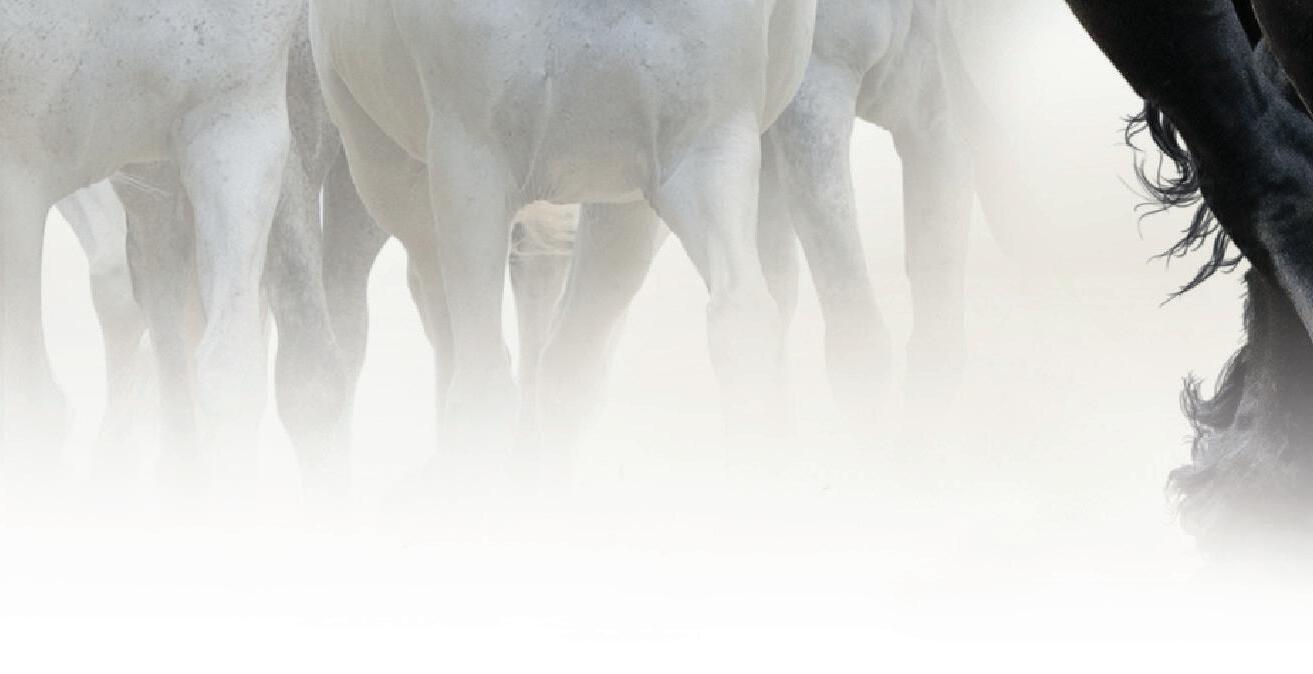









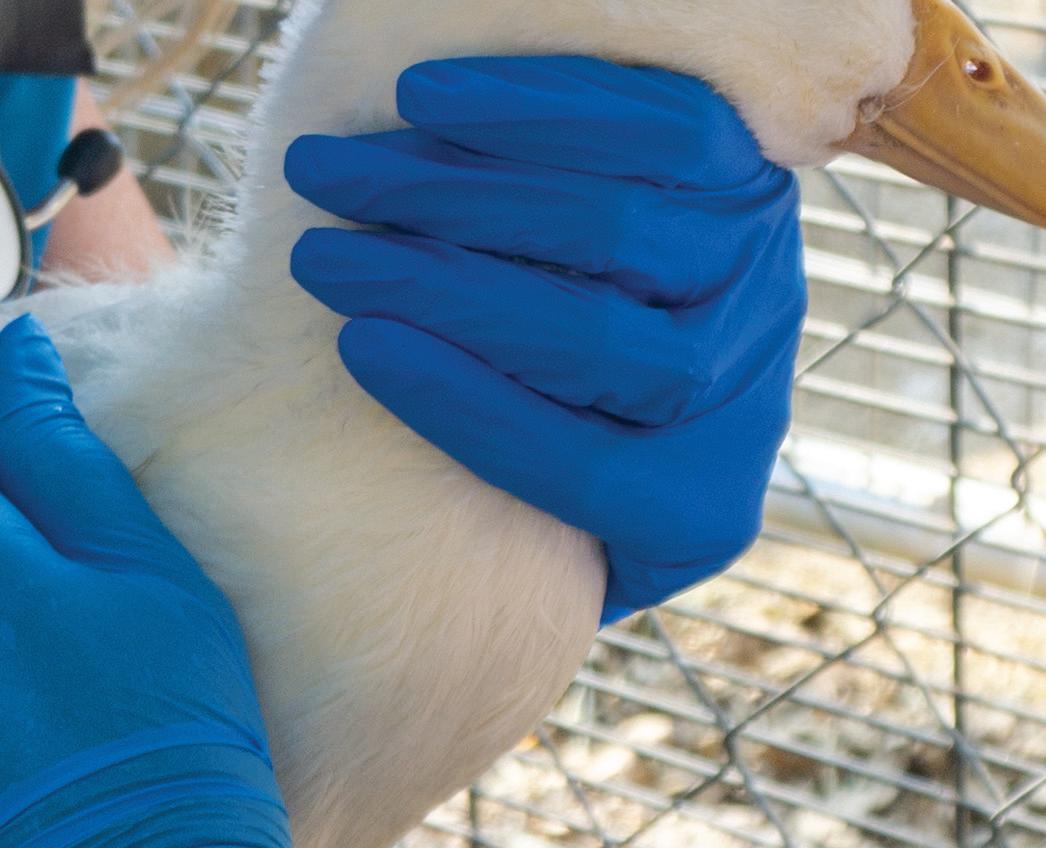
































































CVMA Fall Seminar at the Resort at Squaw Creek
October 8–10, 2021 | 12 CEUs for veterinarians and 8 CEUs for technicians and CVMA CVAs.
For more information, see page 12.
Sponsored by
Sexual Harassment Prevention Education and Training
November 1 and November 9, 2021
1 CEU for non-supervisors | 2 CEUs for supervisors
For more information, see page 37.
CAVMRC Disaster Response Training in Santa Rosa
November 7, 2021 | 7.5 CEUs
IN-PERSON
For more information, see page 22.
Menacing Methicillin-Resistant Staph: Getting Under the Skin, How to Manage and Prevent Bacterial Resistance
December 1, 2021 | 5:30 PM–6:45 PM (1.5 CEUs)
December 7, 2021 | 12:30 PM–1:45 PM (1.5 CEUs)
For more information, see page 37.
CVMA Spring Seminar in Yosemite
March 11–13, 2022 | 12 CEUs for veterinarians
For more information, see page 20.
IN-PERSON
Registration opens October 16, 2021.
Sponsored by

2022 Pacific Veterinary Conference in San Francisco
June 2–5, 2022 | 28.5 CEUs
IN-PERSON
Registration opens in November. Watch your email for more information.
Registration for all CVMA events can be made online by logging onto cvma.net or by calling 800.655.2862.
CVMA-A liated Programs
California Veterinarian (ISSN 00081612) is published bi-monthly by the California Veterinary Medical Association, e-mail: staff@cvma.net. California Veterinarian is an official publication of the California Veterinary Medical Association. Annual subscription rates to non-members: $50 U.S., $60 Canada/Mexico, $70 overseas. Price per single copy: $10 current year, $12 back issues. Periodicals postage paid at Sacramento, CA and at additional mailing offices. POSTMASTER: Send address changes to California Veterinarian, 1400 River Park Dr., Suite 100, Sacramento, CA 95815-4505. Phone: 800.655.2862
The CVMA and California Veterinarian assume no responsibility for material contained in articles and advertisements published, nor does publication necessarily constitute endorsement by them. ©2021 CVMA
The Publication of the California Veterinary Medical Association
Publisher Dan Baxter
Managing Editor Kristen Calderon
Editor Taryn DeOilers
Publication Designer Howard Steffens
Classified Advertising
Board of Governors
Laura Phillips
President Dr. Elisabeth Klapstein
President-Elect Dr. Keith Rode
Member-at-Large Dr. Michael Karle
Members
Dr. Peter Bowie
Dr. Patrick Connolly
Dr. Larry Correia
Dr. Jennifer Hawkins
Dr. Adam Lauppe
Dr. Julia Lewis
Dr. Peter Mangold
Dr. Teresa Morishita
Dr. Peter Vogel
Dr. James White
Dr. Jodi Woods
Dr. Dirk Yelinek
Student Representatives
University of California, Davis Alison Pankowski
Western University Katelyn DeVore
Treasurer Dr. George Bishop
Chair, House of Delegates Dr. Brent Wooden
CVMA Staff
Executive Director Dan Baxter
Assistant Executive Director Della Yee
Director of Communications Kristen Calderon
Director of Finance Kathy Van Booven
Director of Regulatory Affairs Dr. Grant Miller
Design and Marketing Manager Howard Steffens
Membership and Student Services Laura Phillips
Manager
Publications Manager Taryn DeOilers
Accountant Bernice Evans
Communications and CE Coordinator Nicole Campos
Executive Assistant Patricia Lynn
Finance Coordinator Sharmele Browne
Meetings and Events Coordinator Lily Briggs
Membership Coordinator Jennifer Smith Receptionist Mary Young
Display Advertising
Please contact Taryn DeOilers at 916.649.0599 ext. 16 or email tdeoilers@cvma.net.
On August 30th, as the Caldor Fire was raging from Placerville to South Lake Tahoe, causing thousands to evacuate their homes, the CVMA deployed its California Veterinary Medical Reserve Corps (CAVMRC) at the request of the state to aid animals displaced or injured in the disaster.
The CAVMRC is the largest voluntary veterinary medical disaster relief group in the country, with over 2,600 volunteers. The CAVMRC’s purpose is to provide free veterinary medical care to animals in emergency shelters during declared disaster responses. Our volunteers consist of veterinarians, registered veterinary technicians, veterinary assistants, and veterinary students, with a passion for helping animals in disaster situations.
The CAVMRC came into existence in 2009, and thus far, all of our deployments have been to wildfire zones. As of our September 17th press date, the Caldor fire has burned over 200,000 acres and destroyed over 1,000 structures and caused more than 40,000 people in its path to evacuate. The fire is now 71% contained, the majority of evacuees have been allowed to return to their homes, and we have completed our deployment.
Here at the offi ce, when the CAVMRC was called to deploy, Dr. Grant Miller—the CVMA’s Director of Regulatory Aff airs and CAVMRC’s State Coordinator—worked with the CVMA’s Kristen Calderon and Jennifer Smith to scramble our volunteers to El Dorado County Animal Services in Diamond Springs, California, the base of operations for small animal relief eff orts for the Caldor Fire. Large animal relief stations were set up in Placerville and Plymouth. Over the 19 days of deployment, CAVMRC Deputy Coordinator Dr. Jay Kerr and Region 4 Coordinator Dr. Noel Dybdal headed up eff orts on the ground, along with fi eld coordinators Dr. Jeff Smith and Dr. Karen Krstich directing 67 CAVMRC volunteers, who worked a total of 1,228 hours treating a variety of animal species. We are truly grateful for the Herculean work of our volunteers, who dropped everything on little more than a moment’s notice, putting their own work, schedules, and personal lives on hold to help communities in need. Volunteer participation can be a literal matter of life or death for rescued animals, and means the world to local offi cials and animal owners alike.
As California’s wildfire season becomes longer and more intense, the CAVMRC’s work will become even more important in the years to come. To that end, we are exploring options for the purchase of a mobile command center: a recreational vehicle that we will build out to serve as both (1) a singular means to transport needed medications and supplies to disaster areas and (2) a centralized hub from which we can direct efforts once we reach those areas. Overall, a mobile command center will allow us to effectuate a speedier, more effective response when we are called upon by relevant authorities to serve.


How does the CAVMRC get funded? Well, I’m glad you asked! The CAVMRC is supported by donations made to the California Veterinary Medical Foundation, and those donations are essential to CAVMRC’s continuing operations. If you wish to make such a donation, please go to cvmf.net/how-to-help, and follow the prompts. Donations of any amount are appreciated, and will directly assist our efforts to support animal well-being during wildfires and other disasters. Similarly, if you wish to be a CAVMRC volunteer, please visit cavmrc. net to obtain more information.
By the time you read this, the Caldor fire may be over, but the CAVMRC’s work will remain, both this season and next. Whenever we are called upon to assist, we will be ready!


































 Dan Baxter, Executive Director
Dan Baxter, Executive Director


Wow, here we are, two months since graduation, practicing as full-fledged veterinarians. Finally, our dream has become a reality. To be completely honest, I was a little nervous about writing this second article because I’ve only been practicing for one month as of yesterday. Staring at this blank Word document, watching that cursor blink in anticipation, I thought, “Do I really have something worthy of sharing?” After all, I spent my first two weeks shadowing and taking the occasional urgent care case, and my last two finally taking on appointments. The slow but oppressive trickle of self-doubt crept in on me. “Compared to my other classmates, I’ve got nothing to offer.” Then it clicked. I can write about that doubt.
School does an amazing job teaching us the ins and outs of medicine, everything we need to know about the pathomechanisms of diseases, what we can do to treat them, and how to communicate effectively with our clients and colleagues. We are trained professionals with the knowledge to practice medicine. What no amount of schooling could ever prepare us for is the pressure of being the person that others go to for advice, be it a benign wellness exam or a pressing emergency. As a student in clinics, I was certainly intimidated by being the “primary” on a case. Forming my own differentials and a diagnostic plan was daunting; however, there was always the cushion of a preceptor guiding me every step of the way. When cases got too complicated, they’d sweep in to pick up the pace. Now, as a new graduate, I do find that I’m slow to make decisions managing cases, particularly endocrinology and renal patients. Sometimes, I take an inordinate amount of time researching every detail of working up and treating a disease, and once I reach my answer, I’m reluctant to move forward because of that little voice in my head that asks me, “Hey, Robin. What if you’re wrong?”
The fact is error is inevitable. It is bound to humble and humiliate us no matter how hard we try to avoid it. Truthfully, I have already made a couple mistakes. Thankfully, they were not at the expense of a patient’s life, but they were hard learning experiences nonetheless. It’s in these moments that I’ve finally understood what it means to “practice” medicine. This is not a game where we show up and execute every move with the perfection of a well-programmed machine—this is practice. The knowledge is there, but it’s going to take repeated efforts
to understand and fine-tune which diagnostics to run, which drugs work best, and which anesthetic protocols we find most effective. As perfectionists, we strive to do the best we can for each and every patient, and as perfectionists we are so hard on ourselves when we don’t achieve that pristine outcome. But such is the name of our game; we are here to practice medicine, so let’s show up to practice every day better than we were the day before.
I want to end by saying that amidst the chaos of being a new graduate, I am happy to report that I have a very supportive hospital backing me. There are doctors to whom I relentlessly go for advice, and a team of outstanding technicians, kennel staff, and CSRs that work with me as a team. Not to mention, I text my veterinary school friends weekly to share cases and swap stories. Class of 2021, here’s to finding our confidence in this next chapter of our careers.

Let the CAVMRC Help with Your Disaster Preparedness
September is National Disaster Preparedness Month, a time for people to prepare for emergencies in their homes, businesses, and communities. With California already in the middle of a harsh wildfire season, it’s more important than ever for residents—including veterinary professionals—to develop a plan in the case of disaster. The California Veterinary Medical Reserve Corps (CAVMRC) is providing a low-cost course on “Animals in Disasters – Common Medical Conditions” on November 7, 2021 in Santa Rosa, California that will help veterinary professionals prepare for disaster response. See page 22 for more information.
World Rabies Day Is September 28, 2021
Since 2007, World Rabies Day has been observed globally to raise awareness about rabies and to take collaborative action in strengthening prevention worldwide. World Rabies Day provides an opportunity for veterinarians, doctors, educators, policy makers, and other stakeholders to reflect on their efforts to control rabies—a fully preventable disease that nonetheless kills tens of thousands of people every year. Visit https://rabiesalliance.org/world-rabies-day for more information and to schedule your own World Rabies Day activities.
National Veterinary Technician Week recognizes the critical role of veterinary technicians in veterinary practices, as well as their contributions toward preserving animal welfare. An annual tradition since 1993, National Veterinary Technician Week will be celebrated this year during the week of October 17–23. The National Association of Veterinary Technicians in America is offering a media kit that provides suggestions and templates for celebrating the week. Visit https://www.navta. net/page/nat_vet_tech for more information.

The CVMA is seeking input on which member benefits you find most useful and which additional benefits you would like to see offered in the future. A survey will be emailed out to all CVMA members on Monday, September 27. Please lend us your valued insight by completing this short survey when it arrives in your inbox. The survey will close on October 8.
Congratulations to Dr. Peter Weinstein, who is retiring as the Southern California Veterinary Medical Association’s (SCVMA) Executive Director, a position he has held since 2007. Dr. Weinstein has been an important member of the CVMA as well, having served as president in 2003–2004 and having participated on numerous task forces and committees. He will be handing the torch to Dr. Jennifer Hawkins, a past SCVMA President. The CVMA is fortunate to have a close working relationship with Dr. Hawkins, who is the CVMA’s current District II Governor and chairs the Access to Care Task Force. We wish Dr. Hawkins much success in the coming years and Dr. Weinstein a relaxing and happy retirement!
The past few years have served as a great challenge to many in the veterinary profession. Between adhering to rapidly changing COVID-19 workplace regulations, successfully navigating the unexpected boom in pet ownership, and then transitioning back to a pre-COVID (or hybrid) workplace, veterinary personnel have displayed their hard work, resiliency, and love for animals. Many of your colleagues have particularly rose to the occasion during this tumultuous period, perhaps working long hours while still finding time to mentor, devoting their free time to improving their communities, or participating in organized veterinary medicine to keep the needs of the profession front and center.
Every year, the CVMA recognizes dedicated and exemplary veterinary professionals through a series of specifically designated awards. The awards are o ered in several categories and include veterinarians, registered veterinary technicians, organizations, and others who contribute to the veterinary community. We rely on the veterinary community that works alongside special people, organizations, and animals to provide us with nominations so that we can make sure to honor those who are truly exceptional.
If you know someone who has made a significant di erence and who you believe deserves to be recognized, please nominate them for one of the awards listed below. The deadline for nominations is December 15, 2021. Award recipients will be recognized in the 2022 May/June issue of the California Veterinarian and honored at next year’s CVMA Awards and Installation Ceremony.
Lifetime Achievement
This is the CVMA’s most prestigious award, which recognizes a member of the CVMA who has made noteworthy contributions to the advancement of veterinary medicine. Veterinarians who have exerted outstanding leadership in organized veterinary medicine and/or who have otherwise contributed significantly to veterinary medicine in California are honored.
Distinguished Life Membership
Distinguished Life Membership is the CVMA’s highest membership honor and is awarded to an individual who has significantly exceeded membership obligations through active participation in CVMA leadership.
California Animal Hall of Fame
This award honors animals who exemplify the a ection, loyalty, security, and value of the human-animal bond through unselfish and courageous accomplishments.
Outstanding RVT of the Year in Private Practice
This award honors RVTs in private practices who possess outstanding professional ability and takes into account educational achievements, individual contributions, professional a liations, and special experience that sets them apart from others.

Linda Markland RVT of the Year in Non-Private Practice
This award recognizes RVTs in non-private practices who possess outstanding professional ability and takes into account educational achievements, individual contributions, professional a liations, and special experience that sets them apart from others.
RVT’s Outstanding DVM of the Year in California
This honor is awarded to a progressive veterinarian who utilizes their RVTs and sta to their fullest potential and emphasizes the importance of an educated, certified professional technical sta .
Meritorious Service Award
Nominees for the award can be an individual giving special attention to the human-animal bond, a special program or service o ered by an organization, or a media publication that demonstrated a commitment to coverage of veterinary or animal-related stories.
Outstanding Service Award
This award honors those who have been excellent representatives of the profession through active community involvement and/or veterinary service, including participation in veterinary and/or nonveterinary groups and associations.
Additional descriptions of each award, nominating criteria, and convenient forms are available under the Membership tab at cvma.net. You may contact the CVMA by calling 800.655.2862 or via email at sta @cvma.net for more information and nomination forms.

Members are the heart of the CVMA

Mt. San Antonio College
What is your life philosophy?
If you believe strongly in something, stand up and fight for it.

I knew I was in the right profession when I was able to wake up every day, go to work, and genuinely enjoy my day no matter the ups and downs that came with it.
The best decision I ever made was getting married to my best friend, Casimar, and having our son, Kingston.



A TV show that has impacted my life is Friends and Gilmore Girls; I couldn’t choose one.
If I could have dinner with any famous person in history, it would be Bob Marley—I would want to discuss his view on life and people.
I still want to learn how to cook like my mother to keep her traditions going, especially Posole.
I am a CVMA member because: I love to stay involved so I can know what’s going on in my profession, relay that information, and mentor fellow technicians that I lead.
Lead Veterinary Technician at Pedley Square Veterinary Clinic


The COVID-19 pandemic continues to create challenges at the State Capitol in allowing the Legislature to hear a large number of bills and, as a result, several legislators have elected to pause their measures in 2021. But some bills are still active and are of particular importance to the veterinary profession. The CVMA’s legislative team has participated in numerous calls and virtual meetings with legislative staff and stakeholders and has submitted position letters on bills of high importance. Below is a summary of the most important bills that the CVMA has worked on this year.
Introduced in mid-July, this resolution asks the California State Assembly to commit to “sensible and humane therapeutic veterinary procedures for companion animals.” Typically, Assembly and Senate Resolutions are celebratory in nature. However, HR 61 adopts a diff erent tone by implying that veterinarians are subjecting animals to unnecessary surgical procedures without any regard for the overarching health of the patient. As written, HR 61 bans “nontherapeutic” surgeries, a term undefi ned in law, but which appears in this resolution to include surgeries such as elective gastropexy or laparoscopy that are benefi cial to an animal’s care. While HR 61 does not include an explicit statement against cat declawing, the resolution’s sponsors have sponsored past legislation to prohibit declawing, and the CVMA believes this intent is driving HR 61, as well. The CVMA has submitted an opposition letter to the Author and key members of the Legislature.









The Assembly Business and Professions Committee and the Senate Business, Professions, and Economic Development Committee periodically hold joint sunset oversight hearings to review boards under the Department of Consumer Affairs (DCA). The sunset review process provides an opportunity for the DCA, the Legislature, the boards, and interested parties and stakeholders to discuss the performance of the boards and make recommendations for improvements. The Veterinary Medical Board (VMB) is being reviewed in 2021, and its report to the Sunset Review Committee is posted on the VMB’s website. The CVMA submitted two letters to the Sunset Review Committee with comments and positions on issues addressed in the VMB’s report. The VMB’s Sunset Review is one of the most important, timeconsuming measures that the CVMA works on every four years, as the Sunset bill typically addresses licensing fee structures and complex scope of practice matters, in addition to the general review of the VMB. Among the more significant items included in this year’s bill are:
{ Revise and raise the statutory limits for license and permit fees, and lower Registered Veterinary Technician fees
{ Create a statutory exemption to premises registration with the VMB for animal shelters that perform the limited veterinary practices of vaccination, parasite control, and administering medications to individual animals pursuant to orders from a veterinarian with an established Veterinarian-Client-Patient Relationship for that animal

{ Require RVTs, veterinary assistants, and veterinary assistant controlled substance permit holders to wear name identification tags in at least 18-point type that include their license or permit numbers
{ Expand the VMB’s scope of authority in relation to premises permits of practices owned by nonveterinarians and prohibit them from interfering with, directing, or controlling the professional judgment of any veterinarian or RVT
{ Make falsely advertising as a specialist or board-certified practitioner subject to board discipline
CVMA POSITION: Watch, Work with Author
BILL STATUS: Senate Floor
AB 1282 (BLOOM) (COAUTHOR WILK): VETERINARY MEDICINE: BLOOD BANKS FOR ANIMALS.
This legislation will transition California’s closed-colony canine blood banking model to a community-sourced blood donor system. The CVMA has been actively involved in the issue of animal blood banking since 2019 and worked closely with the bill’s authors to represent the needs of the veterinary profession again this year. CVMA issues that were addressed include preserving a safe and adequate supply of blood and blood products and determining when and how California will transition from the closed-colony model to a community-sourced model. During a Senate Appropriations committee review of the bill in August, the VMB and California Department of Food and Agriculture (CDFA) expressed concerns with some of the logistical aspects of the bill, and the Department of Finance opposed the bill due to its fiscal impact. As a result, a budget trailer bill was amended to include $1 million in funding for CDFA implementation.
CVMA POSITION: Approve
BILL STATUS: Senate Floor
AB 1533 (ASSEMBLY BUSINESS AND PROFESSIONS COMMITTEE) CALIFORNIA BOARD OF PHARMACY: SUNSET REVIEW.
The CVMA submitted comments to the Joint Sunset Review Committee regarding issues with the California Board of Pharmacy (BOP), primarily concerning veterinary compounding. One of the items raised in the CVMA’s comment letter was a request that at least one BOPappointed member be a compounding pharmacist. The CVMA’s request was successful, and that compositional requirement is being implemented accordingly. The CVMA will continue to advocate for the veterinary profession at
both the legislature and the BOP to protect the ability of veterinarians to provide medications to animal patients.
CVMA POSITION: Watch, Work with Author
BILL STATUS: Senate Floor
SB 547 (GLAZER): ANIMALS: EMERGENCY RESPONSE: CALIFORNIA VETERINARY EMERGENCY TEAM PROGRAM.
SB 547 creates a state-funded Veterinary Emergency Team at the UC Davis School of Veterinary Medicine to assist the California Department of Food and Agriculture (CDFA) in developing and implementing all aspects of the California Animal Response Emergency System (CARES), including participating in disaster response field operations. The CVMA testified in support of this bill during an Appropriations Committee hearing and submitted support letters to legislators throughout the legislative process. The bill was incorporated into AB 132, a highereducation budget trailer bill, and was signed into law on July 27, 2021. It will provide $3 million annually to UC Davis from the state general fund to support its disaster response program. UC Davis will begin its new role in disaster response on January 1, 2022.
CVMA POSITION: Support
BILL STATUS: Chaptered into Law as part of 2021 Budget Trailer
Bill AB 132
OTHER ACTIVE BILLS FOR 2021
AB 70 (SALAS): GENE SYNTHESIS PROVIDERS.
CVMA POSITION: Watch
AB 468 (FRIEDMAN): EMOTIONAL SUPPORT DOGS.
CVMA POSITION: Approve
AB 527 (WOOD): CONTROLLED SUBSTANCES: CANNABINOIDS.
CVMA POSITION: Watch
AB 1306 (ARAMBULA): HEALTH PROFESSIONS CAREERS
OPPORTUNITY PROGRAM.
CVMA POSITION: Watch
SB 453 (HURTADO): AGRICULTURE: BIOSECURITY AND EMERGING INFECTIOUS DISEASE FUND.
CVMA POSITION: Watch
SB 703 (HURTADO): DISEASED ANIMALS: LABORATORY SERVICES.
CVMA POSITION: Support
BILLS MOVED TO INACTIVE STATUS SINCE JULY 2021
AB 253 (PATTERSON): ANIMAL WELFARE.
CVMA POSITION: Watch
SB 252 (WIENER): TOXICOLOGICAL TESTING IN DOGS AND CATS.
CVMA POSITION: Watch
SB 344 (HERTZBERG): GRANTS: HOMELESS SHELTERS: PETS AND VETERINARY SERVICES.
CVMA POSITION: Approve
SB 519 (WIENER): CONTROLLED SUBSTANCES: DECRIMINALIZATION OF CERTAIN HALLUCINOGENIC SUBSTANCES.
CVMA POSITION: Watch
For specific information on bills or to track CVMA-monitored bills through the legislative process, visit the CVMA’s online Legislative Action Center, which now has a new look and format. The Voter Voice platform makes searching for relevant legislation easier and more user-friendly. Check out the improved format by logging onto cvma.net and clicking on the Government tab.
Come stay among the towering pines and lush mountainsides of Olympic Valley, the luxurious setting for this year’s CVMA Fall Seminar. Fill your mornings with valuable CE and spend the rest of your day with family, friends, and colleagues enjoying the natural beauty of the area—located just five miles from North Lake Tahoe’s stunning shores!
DVM Track (Friday–Sunday • 12 CEUs)
Ophthalmology | Tomo Wiggans, DVM, MEng, DACVO

Dr. Tomo Wiggans earned a Master of Engineering at Cornell University, working as an engineer for several years before pursuing veterinary medicine. Dr. Wiggans graduated from the UC Davis School of Veterinary Medicine, completed a rotating internship and specialty fellowship at Colorado State University, and completed a three-year residency in comparative veterinary ophthalmology at UC Davis. He became board-certified in 2015. Dr. Wiggans currently works at VCA Bay Area Veterinary Specialists in San Leandro, CA.
Gastroenterology | Katie Tolbert, DVM, Ph.D., SAIM (Gastroenterology)
Dr. Katie Tolbert completed her SAIM and Ph.D. in Comparative Biomedical Sciences at North Carolina State University. She is a clinical associate professor in the Gastrointestinal Laboratory at Texas A&M University as well as a clinical veterinary instructor at North Carolina State University. She also serves as the veterinary practice logistics liaison for the Dog Aging Project. She received the Zoetis Award for Excellence in Veterinary Research in 2018.


Technician Track (Saturday–Sunday • 8 CEUs)
Emergency and Critical Care | Amy Newfield, MS, CVT, VTS (ECC)
Amy Newfield is a project manager for training, health, and wellness at BluePearl Veterinary Partners and the owner of Veterinary Team Training. She found her passion in emergency medicine and obtained her VTS in Emergency and Critical Care. She has held several board positions in the Academy of Veterinary Emergency and Critical Care Technicians and Nurses, including serving as its president. Amy is a published author on over 20 subjects.
Resort at Squaw Creek 400 Squaw Creek Road, Olympic Valley, CA 96146
Reserve your room by September 14, 2021 and get our special CVMA room rates:
• $209 Deluxe Guest, plus tax

• $239 Fireplace Suite, plus tax
• $259 Deluxe Fireplace Suite, plus tax Hotelresortfeeisincludedinthegrouprate. Reserve your room online at cvma.net or by calling the hotel at 800.404.5544. Be sure to identify yourself as a CVMA Fall Seminar attendee to obtain the special rate.

Unable to join us in Tahoe? Try our new hybrid format!
Virtual attendees will be able to communicate directly with the speakers and moderators in real time.
If state or local mandates restrict public gatherings, the CVMA will instead o er the Fall Seminar in live and interactive online presentations and keep the spirit alive with Tahoe-themed activities and ra es. Visit cvma.net for full seminar details including the latest safety protocols.














Selling your practice will likely be a once-in-alifetime event. Whether you are considering retirement or exploring your options, we recommend that you take an active role in your practice transition. As you will see, this requires personal reflection and the advice/expertise of those who work on the business side of veterinary medicine.
Consider Your Feelings. The prospect of selling your practice will likely elicit strong feelings and emotions. You may have built your practice over many years, perhaps decades, and the idea of letting go may feel like an emotional rollercoaster. Your practice culture refl ects your personal values and ethics in providing the very best care for your patients. You may be most interested in “how much money will I get in return from the sale?” but it is important to acknowledge your non-monetary thoughts and emotions to avoid regrets.
Build Your Team. You will understandably have many questions and concerns about your present fi nancial condition and realistic transition options moving forward. Assessing your fi nancial ability to realize your


vision of retirement is a critical step in determining a “treatment plan.” Key specialists who understand and work in the business side of veterinary medicine, such as consultant brokers and legal experts, can provide the guidance you need in the areas of fi nancial planning, accounting, and tax planning. You are the coach of the team, and your fi nancial and legal advisors are the players you send out onto the fi eld.
Most veterinary consultants/brokers recommend preparing for practice transition 3 to 10 years in advance. Because the value of your practice is based on profi tability, it can be benefi cial to begin working with a broker/consultant and accountant early on to examine areas of your practice that may need improvement. Advance planning can also provide a safety net if you or a family member has an unexpected change in health that necessitates the sale of your practice.
You may also seek advice from a fi nancial planner to help integrate the future sale of your practice into your retirement income plan. Obviously, it is common for small business owners to tie their personal



wealth to their business venture. However, rather than relying on the sale of your practice to fund most of your retirement, we recommend fi lling several diff erent buckets during your working years to generate income. In addition to your practice equity bucket, you may have buckets for guaranteed income, including social security and investment vehicles like IRAs and 401ks. Not putting your eggs in one basket is still sage advice.
Considerations for the Sale of the Practice. As noted above, you may discover there is more to selling your practice than fi nancial considerations. Cultivating a healthy practice culture and earning your clients’ trust takes time and commitment. When you fi nally hand over your keys, do you want to feel that your staff and clients are in good hands for the future? Your plan may focus fi rst on making improvements to your practice, then grooming an associate as your successor over time. On the other hand, based on your fi nancial needs, you may fi nd that you are not in a position to be selective, so sales price is your overriding concern.
In order to facilitate a smooth transition, a reasonable expectation is that most buyers will want your continued engagement in daily practice operations. You could consider selling your practice in phases over time. How much of a commitment are you willing to make? Perhaps you enjoy coming into the hospital every day and would be willing to sign an employee agreement in exchange for a higher price. Or, you may be truly done and want the best sales price and terms that allow you to simply walk away.
for a profi t. If you are considering selling to a consolidation buyer, we recommend that you and your team assess them on a caseby-case basis. Because of the inherent confl ict of interest between the stakeholder’s fi nancial goals and the medical needs of the patients, this business model may make it diffi cult to fi nd an appropriate buyer. You may be enticed by a high off ering price, but it may come at a cost, with an employee agreement and/or noncompete clauses. Consolidation buyers are typically expert negotiators. Your team can provide invaluable support in working with potential consolidation buyers.
Fit for Your Practice? A recent trend has been for consolidators to purchase practices well above what would be considered a fair price and still achieve their objective to maximize Return of Investment (ROI) for stakeholders by buying multiple practices and turning them over
Conclusion. A successful transition takes many considerations into account. Nobody cares more about your practice than you, so staying engaged throughout the process will only work to your advantage. Working with a team—which may include accountants, legal professionals, brokers, and consultants—to develop and sustain a fi nancially healthy practice can allow you the fl exibility to command the highest sales price and select the most appropriate buyer.
John CarmichaelMr. Carmichael is a senior associate with Capstone Financial and strategic partner with VISC, who handles life and disability insurance for CVMA members. John has enjoyed working exclusively with the veterinary community for over 12 years. He is known for his easygoing style and focus on education to help empower his clients to make informed decisions about their life and disability insurance programs. His commitment to conducting business with honesty and integrity is etched in the famous quote, “People don’t care how much you know until they know how much you care.” Mr. Carmichael can be reached at 800.544.6003 or at jcarmichael@capstonefinancial.net. (CA license #0F14121)

“Because the value of your practice is based on profitability, it can be beneficial to begin working with a broker/consultant and accountant early on to examine areas of your practice that may need improvement.”
This is the last article in the Renew series exploring physical, mental, and emotional health for veterinary professionals. We hope these articles have provided both insight and inspiration for your future wellness and renewal.



 by Alex Miller, VMD By
by Alex Miller, VMD By
Have you ever marveled at how naturally athletic dogs are? They seem built for speed and agility, darting and dodging with aplomb. Whether it’s a Border Collie wrangling livestock or a Yorkie stalking a mouse, it’s plain to see that diff erent breeds are suited to diff erent tasks.
Some researchers suggest that human personality traits serve similar roles. Like physical traits, there are no inherently good or bad personalities, just those optimized for certain conditions and situations. The key lies in understanding our individual personalities and recognizing when they’re serving us
well and when they may be leading us astray.
Despite phenomenal advancements in medical research and an everblurring boundary between neuroscience and psychology, the concept of the Big 5 personality traits has remained relatively static and substantiated for decades. Four of these traits—openness, conscientiousness, extraversion, and agreeableness—are generally considered positive and desirable.

But the fi fth, neuroticism (sometimes described as low emotional stability or negative emotionality), mars the others with negativity. Neuroticism is of particular interest for veterinarians, as we hold the distinction of ranking signifi cantly higher in neuroticism than the general population. Do any of these descriptors characterize you, your vet school friends, or current/ former coworkers?
1. High stress or anxiety when others are relaxed
2. Prone to anger, frustration, or excessive worry

3. Getting into bad moods and staying stuck there
These behavioral characteristics, along with the physical and mental repercussions of a personality high in neuroticism, help account for the epidemic of general unwellness facing our profession. Numerous studies have demonstrated a negative correlation between neuroticism, workplace satisfaction, and overall quality of life. In veterinary medicine specifically, a UK study found that, when it comes to predicting our overall stress levels, personality eclipses environmental factors. And what personality trait was the most significant predictor of occupational stress? You guessed it—neuroticism.
But it can’t be all gloom and doom, right? After all, if the Big 5 are heritable, as research indicates, there must be some behavioral advantage conferred by neuroticism. Indeed, there are multiple proposed advantages to a personality

characterized by higher-than-average neuroticism. These include:
1. Quicker response times and avoidance of dangerous situations
2. Higher competitiveness, leading to greater academic achievement
3. Creativity in problem solving
So now what? I’ve told you that our personalities are largely fixed, and that neuroticism has some serious downsides but also some evolutionary advantages. How does that help anything? What impact does this have on our everyday lives as we work through callbacks, hop from one allergic pet to another, and cram lunch into our stomachs like topping off the gas tank on a long road trip?
First, come to know and understand your personality. There are multiple online resources for this, such as openpsychometrics.org. Even a cursory awareness of our predominant traits can set us on the path to emotional awareness and improved relatedness with others.

Next, armed with this knowledge, start to take conscious note of your thoughts, feelings, and physiologic responses in a variety of settings. Are there any patterns, external circumstances, or settings that tend to lead to certain patterns of thinking or behaviors? Mindfulness apps, like Headspace or Calm, can be particularly helpful here.
To use an analogy, if we spend most of our lives on stage, playing out personal and professional situations like scenes, a mindful appreciation of ourselves helps plant us in the audience, affording us the ability to see our point of view as just one of several. Using this technique might allow us to reevaluate a pet owner’s scowl as not anger or disengagement, but possibly sadness or confusion. Our short-tempered coworker may be experiencing a personal hardship. And most significantly, perhaps we’re sending misinterpreted signals to others without even realizing. You see, since personality plays such a critical role in our response to situations and subsequent worldview, the key to
relating to others is understanding they may experience situations fundamentally differently.
Most importantly, fight the tendency to compare yourself to others. I could devote every waking moment to running for speed, but I’ll never even approach the level of Olympic athletes—not to mention your average toy breed. Yet I still took up running, and I’ve gotten faster over the years. Just as you’ve perfected your surgery skills or diagnostic capabilities over the years, so too can you recognize and appropriately leverage your personality traits.
In short, don’t be best in show. Be best in breed. Trying to be someone we’re not is a recipe for failure. But through knowing ourselves, with hard work and dedication, we can work towards being the best versions of ourselves. A path to a fulfilling career may very well depend on it.
Dr. Alex Miller, the New England area veterinarian with Boehringer Ingelheim Animal Health, believes that veterinary professionals are as deserving of health and fulfillment as their patients. He graduated from the University of Pennsylvania School of Veterinary Medicine, worked at veterinary facilities in Barcelona, New Jersey, and Sonoma County, and is currently pursuing a Master’s degree. He lives in Massachusetts with his extraordinary wife, indefatigable daughter, and tiny adult cat.
“Just as you’ve perfected your surgery skills or diagnostic capabilities over the years, so too can you recognize and appropriately leverage your personality traits.”
Alex Miller, VMD
This wellness series is proudly brought to you by a sponsorship from Boehringer Ingelheim Animal Health.
Ideally, no injuries would ever happen at the workplace. However, most professions involve some exposure to workrelated injuries and the veterinary profession is no exception, having its own unique set of hazards. These include laceration injuries from handling sharp tools and instruments, bite and scratch injuries, slip and fall injuries from wet surfaces, and strain injuries from lifting heavy bags of food and heavy patients, just to name a few. Understanding the risk factors involved with each type of injury can help reduce the occurrence of each. Let’s examine a scenario based on a real accident in a veterinary practice and determine if it could have been prevented.
Sandy and the 60-Pound Mistake Sandy recently started at the Animal Care Clinic as a veterinary technician. When Sandy saw Rocky—an energetic two-year-old Belgian Malinois—burst into the waiting room, pulling his owner in his wake, she knew he was going to be a handful. Sandy led Rocky into the exam room and got him on the scale with some cajoling. After recording his weight at 60.5 pounds, Sandy decided to put him on the exam table. Rocky had calmed down since entering the room and Sandy felt confident she could lift him onto the table. After all, she had recently lifted moving boxes at home that weighed at least that amount. Sandy bent down and wrapped one arm around Rocky’s chest and the other arm behind his hind legs. As she began the lift, Rocky suddenly startled and began squirming violently, forcing Sandy to grip him tighter and set him back down.
Immediately, Sandy felt a sharp pain in her right shoulder, which radiated into her arm and up her neck. Over
the next few days, the pain increased and extended into her back. Sandy was barely able to lift her arm due to sharp pain.
What started as an initial visit to her primary care provider turned into three years of many doctor visits, tests, physical therapy sessions, and steroid injections to the shoulder and neck. It was determined that surgery was unlikely to help. Aside from the costs associated with this injury, Sandy suffered over three years from this accident. Her injury affected nearly all facets of her life. With limited and painful use of her shoulder, she had to modify her work duties, had trouble lifting her young daughter, and was unable to do many of the activities she had enjoyed in the past.
Learning from Sandy’s Mistake
Because lifting injuries in veterinary practices are common, it is important to analyze this type of accident and learn from it. First, realize that lifting an animal is far different than lifting an object such as a box. An animal’s sudden and unpredictable movement can cause you to move in unexpected ways to keep control, causing strains and sprains. Even lifting heavy bags of pet food, which can shift when moved, can pose an increased risk of injury.
While lifting patients is often a necessary part of the job, most injuries in veterinary practices can be prevented or mitigated by using various methods of engineering and administrative controls.
Engineering controls involve a change in the physical features of the workplace to remove the hazard. Examples of engineering controls used to minimize the risk of lifting injuries include:
Lift tables
Ramps
Stairs
Examination rooms and baths designed for large dogs
Shower stalls to bathe large animals at fl oor level
Administrative controls are workplace policies, procedures, and practices for employees to follow to minimize the risk of injury. Examples of applicable administrative controls include:
Training staff to use good lifting mechanics with an emphasis on lifting animals
Establishing a weight limit for lifting animals alone, e.g., require team lifts for any large animal that weighs more than 40 pounds
Storing large or heavy items (such as large bags of pet food) between hip and shoulder height
Sandy’s accident could likely have been avoided had she employed some of the engineering controls above, such as a lift table, a ramp, or stairs to get Rocky onto the table. Even if such tools were not available, had Sandy used a colleague for a team lift and used proper lifting techniques, the chances of injury would have been minimized.
Staff should be encouraged to recognize potential injury exposures throughout the practice and to work with supervisors to create solutions. Working as a team and using proper engineering and administrative controls can keep your practice staff safe, healthy, and productive.
Be safe out there. Your good health and welfare matter to us.
Did you know some firms are charging upwards of 10% commission on sales to corporate consolidators? That’s crazy. Why choose someone with less experience and pay twice as much or more? As the most experienced brokers in the industry we’ve helped more sellers transition their practices to a corporate consolidator than anyone in the industry. We bring 45 years of experience to the table helping sellers get the best price and best terms. Simmons has transacted almost $2-billion in veterinary practice sales. Let us negotiate a better price and put more money in your pocket! Our results speak for themselves!



Give us a call for a complimentary, confidential discussion.
Byron Farquer, DVM, CVARegistration Opens
October 18
Join us in person for valuable CE and scenic views at the CVMA’s 2022 Spring Seminar!
Located at the breathtaking Yosemite Valley Lodge in Yosemite National Park, this weekend-long seminar will provide veterinarians the opportunity to earn up to 12 approved CEUs, gain essential experience and knowledge, and network and re-connect with peers from across the state.

With classes being held in the mornings, afternoons will be free to savor the park’s beauty and explore the national park’s pristine landscape.
Don’t miss out on this opportunity! The CVMA Spring Seminar sells out early every year, so be sure to secure your spot as soon as registration opens on October 18, 2021. Please note, registration forms will not be accepted prior to October 18th.
Craig Gri n, DVM, DACVD, Board Certified Veterinary Dermatologist
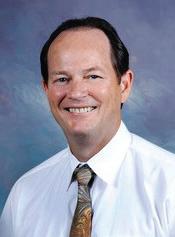
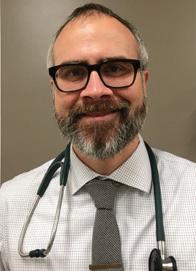
Topic: Dermatology
JD Foster, VMD, DACVIM (SAIM)
Topic: Nephrology/Urology
SEMINAR HOTEL
Yosemite Valley Lodge
9006 Yosemite Lodge Drive, Yosemite National Park, CA 95389
$179 (Thursday) $221 (Friday/Saturday) per night plus tax
Group code 13B5KB
ALTERNATE HOTEL
The Ahwahnee
1 Ahwahnee Drive
Yosemite National Park, CA 95389
$385 (Thursday) $426 (Friday/Saturday) per night plus tax
Discounted rates available until January 25, 2022 or until the group block fills up, whichever comes first. Reserve your room online at travelyosemite.com or by calling the central reservations o ce at 888.413.8869.
Sponsored by

Watch for email notifications or visit the Learning tab at cvma.net for the latest updates and COVID protocols.
For more information and to see course descriptions, visit the Learning tab at cvma.net or call 800.655.2862.
cvma.net

March 11-13, 2022 • Yosemite, California
Use one form per registrant and only fill out if you won’t be registering online. Please complete this form and return with payment to the CVMA office. Registering for the seminar does not also register you for a hotel room. Please see the bottom of the form for information on how to secure a hotel room.
CVMA Member: m Yes m No
Attendee Name (Dr.):
Mailing Address:
City/State/ZIP:
Do you want us to use this information to update your CVMA profile? m Yes m No
Phone: Fax:
Email:
Registration includes: Twelve maximum CEUs for DVMs, a syllabus, a certificate of attendance, and daily continental breakfast for registered conference attendees
CVMA MEMBERS by after Dec. 10 Dec. 10
m DVM $295 $325
NON-MEMBERS by after Dec. 10 Dec. 10
m DVM $395 $425
m Guests Continental Breakfast # @ $30/day $
(Family members and guests of conference attendees, ages 3 and older, can enjoy the continental breakfast for $30 each per day. )
Hotel Information
Yosemite Valley Lodge
9006 Yosemite Lodge Dr., Yosemite National Park, CA 95389
Room rates – (Thursday) $179, (Friday/Saturday) $221 per night.
(Applicable taxes and fees apply).
The Ahwahnee
1 Ahwahnee Dr., Yosemite National Park, CA 95389
Room rates – (Thursday) $385, (Friday/Saturday) $426 per night.
(Applicable taxes and fees apply).
Yosemite Valley Lodge
9006 Yosemite Lodge Dr., Yosemite National Park, CA 95389
Conference registration does NOT include a hotel room.
Enclosed is a check for $ Charge my VISA/MasterCard/Discover/AMEX $
Credit Card Number
Expiration Date
Cardholder Name
Cardholder Signature
CVV Code
By registering for the CVMA Yosemite Spring Seminar, I agree to the terms and conditions of this seminar. Visit cvma.net for up-to-date information.
Book your room by January 25, 2022 by calling 888.413.8869 or online at travelyosemite.com and use CVMA group code 13B5KB. Visit cvma.net for full hotel rate information. Receive the Spring Seminar discounted hotel rate through January 25, 2022 or until the room block sells out, whichever comes first. Guest rooms are limited to conference attendees only. Limit of two rooms.
General Information
Mail, along with payment, to: CVMA, 1400 River Park Drive, Suite 100, Sacramento, CA 95815, or you can register online at cvma.net, by fax: 916.646.9156, or call 800.655.2862.
Registration fee includes: 12 hours continuing education maximum, syllabus, certificate of attendance, and daily continental breakfast for the conference attendee.
Reasonable Accommodation Request: To request a reasonable accommodation (alternate formats, interpreters, or special dietary needs) to participate in this seminar, please contact Della Yee by phone at 916.649.0599, TTY 711, or email dyee@cvma.net with your specific accommodation needs.
Consent to Use Photographic Images: Registration and attendance at or participation in the CVMA Spring Seminar and other activities constitutes an agreement by the registrant to the CVMA’s use and distribution (both now and in the future) of the registrant or attendee’s image or voice in photographs, video, electronic reproductions, and audio of such events and activities.
Cancellation/Refund Policy: All cancellation requests must be sent in writing via fax, email, or regular mail no later than January 7, 2022 to receive a full refund, less 10 percent administration fee.
Attn: Meetings & Events Department
California Veterinary Medical Association-Yosemite Spring Seminar
1400 River Park Drive, Suite 100
Sacramento, CA 95815
By fax: 916.646.9156
By email: staff@cvma.net
If you have any changes or additions to this form after submission, please call us at 800.655.2862.
Since 2009, the California Veterinary Medical Reserve Corps (CAVMRC) has provided veterinary medical care to thousands of animals during declared states of emergency. In its effort to train veterinary professionals to support animal and public health emergency response, the CAVMRC is offering a low-cost, one-day classroom continuing education course to veterinarians, RVTs, and veterinary assistants/students.
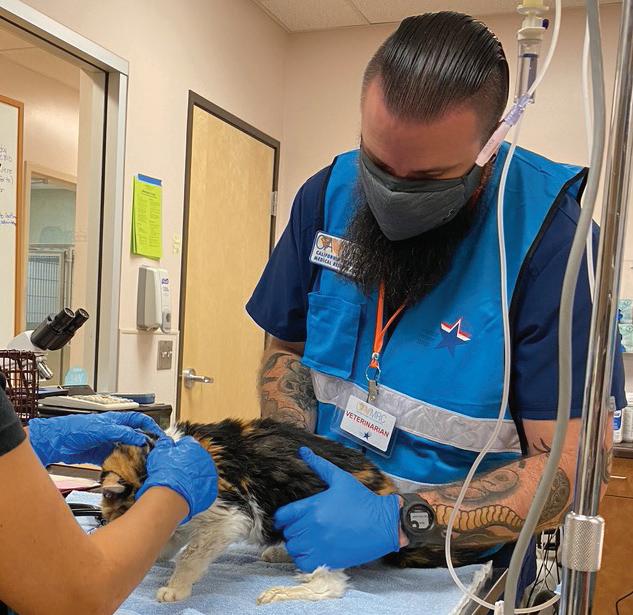
Hyatt Regency Sonoma Wine Country
170 Railroad Street
Santa Rosa, CA 95401
Animals in Disasters —Common Medical Conditions (7.5 CEUs)
SPEAKERS
• Jeannine Berger, DVM, DACVB, DACAW, CAWA
• Grant Miller, DVM
• Shari O’Neill, DVM
• Jamie Peyton, DVM, DACVECC, CVC, CVA, CCRT
TOPICS INCLUDE
• Burn Assessment - Care and Pain Management
• Smoke Inhalation
• Managing Canine Stress in Emergency Shelters
• Managing Feline Stress in Emergency Shelters
• Critical Control Points in Emergency Shelters
• Deployment in the CAVMRC
COST*
• CVMA Members: $99 if registered by October 11; $134 after October 11
• Non-Members: $119 if registered by October 11; $154 after October 11
By registering for this course, you are also registering to become a volunteer member of the CAVMRC if you are not already a current member. CAVMRC membership is free and participation is strictly voluntary. This course is only available to CAVMRC members.
WAYS TO REGISTER
• Online at cavmrc.net
• Fax registration form to 916.646.9156
• Mail registration form to the CVMA office
• Email registration form to staff@cvma.net
• Call 800.655.2862
If state or local mandates restrict public gatherings, the CVMA will instead offer this course in live and interactive online presentations.

Several weeks after the Caldor Fire erupted in El Dorado County in early August, the El Dorado County Animal Services requested assistance from the California Veterinary Medical Reserve Corps (CAVMRC) to provide veterinary medical resources and care to animals housed in emergency and cohabitation shelters throughout the region. Immediately after receiving the deployment call, CVMA staff members sprang into action to pull together the effort. On the ground, the volunteers were directed by veteran field coordinators Dr. Jay Kerr, Dr. Noel Dybdal, Dr. Jeff Smith, and Dr. Karen Krstich, who were supported by Dr. Dave Turoff, the CAVMRC County Coordinator for El Dorado County.
The CAVMRC would like to express its gratitude to everyone who made this deployment possible, with special thanks to all of the volunteers who answered the deployment call. Faced with extreme heat, hazardous air quality, and 12-hour shifts, those deployed provided outstanding care to animals and made a tremendous difference despite difficult circumstances.
Looking to support the CAVMRC? Please donate to the California Veterinary Medical Foundation, which helps fund the work of the CAVMRC during disasters. To donate, visit https://cvmf.net/how-to-help/.











Modern compounding pharmacies fill custom patient-specific prescriptions issued by health care licensees. They are classified by federal and state law as 503A facilities and follow compounding standards set forth by the United States Pharmacopeia (USP) in its chapters <795> and <797> on non-sterile and sterile compounding, respectively.
While it is lawful for 503A pharmacies to provide compounded medications to veterinary practices for in-house use (administration) and secondary distribution (dispensation) to clients, the California Board of Pharmacy (BOP) has taken both regulatory and enforcement actions in recent years to curb this practice. The CVMA is working to represent the needs of the veterinary profession at both the BOP
and state legislature levels, but overall, obtaining compounded medications for veterinary practice use has become increasingly difficult in recent years due to concerns about 503A facilities testing requirements for potency, sterility, and endotoxin in injections. Another type of facility, called a 503B “outsourcing facility,” manufactures medications for sale directly to health care professionals and are not permitted in California to fill patient-specific prescriptions. The table provides a comparison of 503A vs. 503B facilities, but in summary, 503B facilities follow current Good Manufacturing Practices (cGMPs) defined by the Food and Drug Administration (FDA), which are more stringent than the practices defined in USP chapters <795> and <797>. Testing for potency, sterility, and the presence of endotoxin are also different for 503B outsourcers than they are for 503A patient-specific compounders. These 503B facilities are of significant importance to California veterinarians, because they do—and will at an increasing frequency—provide vital cGMP medications which veterinarians may administer in-house and dispense to clients. There are only a handful of 503B outsourcing facilities licensed in California.
Of the small number of outsourcing facilities currently licensed in California, only a few offer veterinary products. Of those, only two currently offer substantial product lines for sterile injectables, oral liquids, tablets, ophthalmic medications, and chemotherapy drugs. More information about these facilities and outsourcing facilities in general may be accessed at: https://www.fda.gov/ drugs/human-drug-compounding/ registered-outsourcing-facilities.
The CVMA is proud to announce Epicur Pharma as a CVMA Recommended Member Benefit. CVMA members who purchase products from Epicur Pharma’s 503B product line for in-house administration and dispensation to clients will receive a 10% discount on all purchases.
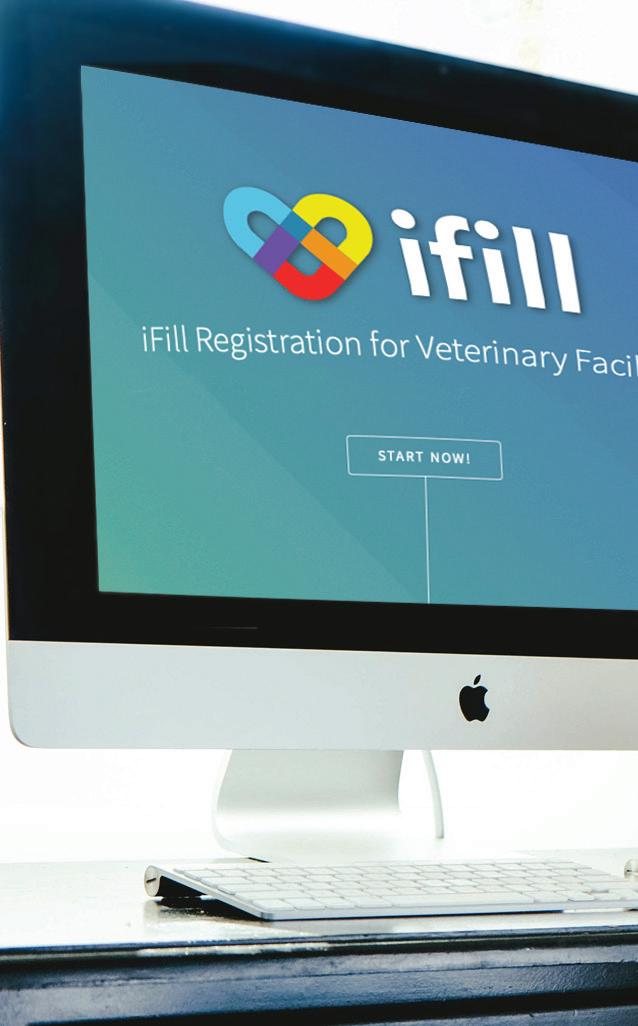





The CVMA would like to thank its members who support the CVMA Political Action Committee (CVMA-PAC) through their generous contributions. Because of these contributions, we are able to sustain our mission of being an authoritative source on issues pertaining to the veterinary profession and the well-being of animals in California.
What does the CVMA-PAC do?
The CVMA is your voice at the Capitol. The CVMA-PAC helps us build strong relationships with members of state government and legislative candidates so that we become their trusted resource on matters important to the veterinary profession and animal welfare. The CVMA-PAC is independent of any political party and candidate and approves contributions regardless of a candidate’s or legislator’s party a liation.
How are CVMA-PAC funds used?
CVMA-PAC funds provide the resources necessary to make legislator and candidate donations, and to sponsor the attendance of CVMA member veterinarians and other CVMA representatives at fundraisers and similar events, both at the local level and in Sacramento. These personal interactions provide invaluable opportunities for us to connect with candidates and those involved in leadership and key committees, all of whom make decisions that directly a ect you, your profession, and your patients.
Thanks to the following donors, who contributed to the CVMA-PAC between January and June 2021!
Presidential Level ($1,000 and above)
Dr. Diane Craig
Dr. James DeLano
Dr. Ned Eib
Dr. Gurnam Gill
Dr. Patricia Grant
Dr. Edd Jordan
Dr. Grant Miller
Dr. Harbinder Randhawa
Dr. Marshall Scott
Dr. Richard Sullivan
Dr. Cheryl Waterhouse
Dr. Dayna Wiedenkeller
Dr. Dirk Yelinek
Governor Level ($500–$999)
Dr. Timothy Govers
Liz Hughston, RVT
Dr. Michael Karle
Dr. H. Jay Kerr
Dr. Elisabeth Klapstein
Dr. Jon Klingborg
Dr. Kevin Lazarche
Dr. John Woodward
Senator Level ($150–$499)
Dr. Anantjit Aulakh
Dr. Dina Bahl
Dr. David Beltran
Dr. Kaitlen Betchel
Dr. Terry Boretti
Dr. Peter Bowie
Dr. Soo Cho
Dr. Eduardo Cornelia
Dr. Larry Correia
Dr. Maureen Dorsey
Dr. William Farber
Dr. Michael Garcia
Dr. Robert Garcia
Dr. Melvin Gerstner
Dr. David Gordon
Dr. Marion Hammarlund
Dr. Debra Jackson
Dr. Sally Kimsey
Dr. W. Douglas Kunz
Dr. Emily Lane
Dr. Adam Lauppe
Dr. Frank Lavac Jr.
Dr. Lana Linton
Dr. Melvin McConnell
Dr. M. Wayne McNeel
Dr. Gene Nagel
Dr. Sung Park
Dr. John Pascoe
Dr. Keith Rode
Dr. Birinder Sahai
Dr. Mary Somerville
Jessica Speas
Dr. Stephen Spellman
Capitol Level ($75–$149)

Dr. Ava Ackerman
Dr. Leila Afshar
Dr. Gerald Aguiar
Dr. Khushwant Ahi
Dr. Majid Ahmed
Dr. Luann Aki
Dr. Lee Akins
Dr. Patricia Alexander
Dr. Aubrey Alfaro
Dr. Karl Anderson
Dr. Mark Anderson
Dr. Kelly Anez
Dr. Deborah Aparicio
Dr. Leon Arai
Dr. Alex Ardans
Dr. Robert Arrick
Dr. Theresa Arteaga
Dr. Louisa Asseo
Dr. Richard Baer
Dr. David Bahou
Dr. Lauren Bailey Liden
Dr. Hilda Baisel
Dr. Jacobo Balairon
Dr. Vincent Baldanza
Dr. John Ballestin
Dr. Victoria Bannerman
Dr. Daniel Barbour
Dr. Eric Barchas
Dr. Bruce Barrett
Dr. Ralph Barrett
Dr. Sharon Bass
Dr. Teresa Beiter
Dr. Brandon Bell
Dr. Celeste Benavides
Dr. Melinda Benitez
Dr. Kimberly Bercovitz
Dr. Keith Berry
Dr. Heather Besso
Dr. Jessica Beymer
Dr. Aurora Bibb
Dr. Chris Biggersta
Dr. George Bishay
Dr. David Bjork
Dr. Dorothy Black
Dr. Waka Blair
Dr. Naveen Bobbili
Dr. Je rey Boehm
Dr. Linda Bogart
Dr. Rebecca Bogdanich
Dr. Julio Bolivar-Dillon
Dr. Randall Bondurant
Dr. Kimberly Bonham
Laura Boone
Dr. James Booth
Dr. Thomas Boyer
Dr. Susan Boynton
Dr. Grace Bransford
Dr. Glenn Brigden
Dr. Craig Brooks
Allison Brown, RVT
Dr. Wayne Browning II
Dr. Bradley Brunskill
Dr. Karen Buchinger
Dr. Alexa Budde
Dr. Laurie Bulkeley
Dr. Kristina Burling
Dr. Laura Burnell
Dr. Cade Burns
Dr. Sharon Burns
Dr. Stephen Burns
Dr. Katherine Burt
Dr. Rebecca Burwell
Dr. Steven Butchko
Dr. Kelly Byam
Dr. Victoria Cain
Dr. Julia Campbell
Dr. Eugene Cannarella
Dr. Susan Cannon
Dr. Manh Cao
Dr. Heather Carmody
Dr. Jill Carroll
Dr. Juan Casillas
Dr. Craig Chandler
Dr. Lindsay Chandler
Dr. Mohamed Chaudhry
Dr. Yun Cheng Chen
Dr. Timothy Cheney
Dr. Andrea Chernov
Dr. Jill Child
Dr. Jae Eul Choi
Dr. Cheryl Chong Klimisch
Dr. Kasey Christenson
Dr. James Chupeco
Dr. David Clark
Dr. James Clark
Dr. Tristan Clark
Dr. Cicely Cleary Marrs
Dr. Cassandra Clemens
Dr. Shawn Clemmer
Dr. Amber Cohn
Dr. Linda Colburn
Dr. Christian Comeau
Dr. Patrick Connolly
Dr. Miguel Constantino
Dr. Audra Cook
Dr. Michael Cooke
Dr. Edward Cornelia
Dr. Diana Cortez
Dr. Irene Cote
Dr. Elizabeth Cox
Dr. Glenn Craft
Dr. Vicki Craig
Dr. Martin Crawford-Jakubiak
Dr. Laura Cross Daniels
Dr. Bernadine Cruz
Dr. George Cuellar
Dr. Calaveras Cunningham
Dr. Chelsea Davidson
Dr. Kyshia Davis
Dr. Martha Davis
Dr. Melinda Dayhu
Dr. Raymont De Villa
Dr. Robert Dean
Dr. Julie Dechant
Dr. Patricia Dedrick
Dr. Lea Del Rosso
Shannon Delahunty
Dr. Sean Delaney
Dr. Kimberly Dembinski
Dr. Richard Denney
Dr. Rajvinder Dhanota
Dr. Cellu Dhawan
Dr. Abigail Dimock
Dr. W. Jean Dodds
Dr. Timothy Donnelly
Dr. Ra y Dorian
Dr. Myron Downs
Dr. Brie Du
Dr. Jessica Dugan
Dr. Julio Duran
Dr. Noel Dybdal
Dr. George Dyck
Dr. David Edsall
Dr. Steven Edwards
Dr. Maria Estacio Sunada
Dr. Wagdi Estafanous
Dr. Belinda Evans
Dr. Brian Evans
Dr. Heather Evans
Dr. Maria Fahie
Dr. Fahmy Fahmy
Dr. Ryan Fairbairn
Dr. David Faria
Dr. William Fastiggi
Dr. Dennis Fees
Dr. James Felts
Dr. Kim Fenske
Dr. Steven Fenster
Dr. Joe Ferguson
Dr. Joel Figueroa
Dr. Gillian Finnie
Dr. Nancy Fischer
Dr. David Fisher
Dr. Cynthia Fitzgerald
Dr. Cho Flores
Dr. Andrea Flory
Dr. Shelley Flowers
Dr. Stephanie Flowers
Dr. Melissa Fogel
Dr. Samantha Ford
Dr. Michael Forney
Dr. Leah Forquer
Dr. Annie Forslund
Dr. Elyse Frank
Dr. Stephen Franquelin
Dr. Gina Fuhrman
Dr. Amy Fulton Scanlan
Dr. Gwen Gadd
Dr. Aimee Gallardo
Dr. Margaret Gamble
Dr. Constance Ganter
Dr. Rick Garcia
Dr. Adam Gassel
Dr. Ryan Gershenson
Dr. Megan Gibbings
Dr. John Gil
Dr. Kanwalpreet Gill
Dr. Paul Girgis
Dr. Sean Goodell
Dr. Marta Granstedt
Dr. Barrie Grant
Dr. David Grant
Dr. Betsy Gray
Dr. Eric Griesshaber
Dr. Gregory Gstrein
Dr. Gamal Guirges
Dr. Frank Hagan
Dr. Gerald Haggard
Dr. Coco Hagos
Dr. Spring Halland
Dr. Laura Halsey
Dr. John Hamil
Dr. Holly Hamilton
Dr. Nancy Hampel
Dr. Thomas Hansen
Dr. Sean Hardcastle
Dr. Laurel Harris
Dr. Laura Hart
Dr. Edward Haynes
Dr. Karen Heard
Dr. Catherine Hedden
Dr. Jon Heit
Dr. Kim Henry
Dr. Eric Herrgesell
Dr. Paul Hess
Dr. Maxwell Hibi
Dr. Keith Hilinski
Dr. Ashley Hill
Dr. Katheryn Hinkle
Dr. Kerrin Hoban
Dr. Conor Ho
Dr. Walter Hoge
Dr. Bradley Hollstien
Dr. Beverly Holmes
Dr. Taylor Homec
Dr. Alvin Hong
Dr. Jennifer Hoose
Dr. Je rey Horn
Dr. Susan Horowitz
Dr. Mary Jo Howe
Dr. Cheryl Howerton
Dr. Ruby Hsieh
Dr. Yuchi Huang
Dr. Ann Hudek
Dr. John Huebner
Dr. Lindsay Huie
Dr. Karen Hume-Smith
Dr. William Husky
Dr. Christina Hutson
Dr. Youjoung Hwang
Dr. Andres Ichord
Dr. Michael Ina
Dr. Melodee Ingram
Dr. Thomas Irwin
Dr. Karen Jackett
Dr. Richard Jackson
Dr. Phillip Jacobs
Dr. Harpinderjit Jassar
Dr. Carla Johnson
Dr. Khara Johnson
Dr. Lorraine Johnson
Dr. Cassie Jones
Dr. Donald Jones
Dr. Malcolm Jones III
Dr. Kathy Jonokuchi
Dr. Matthew Judd
Dr. Miwa Kanbe
Dr. Sari Royce Kanfer
Dr. Sang Kang
Dr. Dong Kang
Dr. Myriam Kaplan-Pasternak
Dr. Shawn Kari
Dr. Michael Kavanagh
Dr. Mary Kayser
Dr. Kelle Kearney
Dr. Nathan Keefer
Dr. Caitlin Kelly
Dr. Ronald Kelpe
Dr. Nada Khalaf
Dr. Ian Kidd
Dr. James Kim
Dr. JangWoo Kim
Dr. Seung Kim
Dr. Stephen Kim
Dr. Youngjoo Kim
Dr. Ann King
Dr. Andrea Kirsch
Dr. David Knox
Dr. Wayne Kopit
Dr. Jeanne Koploy
Dr. Elizabeth Koskenmaki
Dr. Michael Kovsky
Dr. Kimberly Krauss
Dr. Donald Krawiec
Dr. Heather Kriensky
Dr. Terry Kubicka
Dr. Eve Kuesis
Dr. Jamie Lake
Dr. Kellie Lam
Dr. Erin Lane
Dr. Lawrence Lanzon
Dr. Linda Larsen
Dr. Gary Lattig
Dr. Gregory Lawson
Dr. Colleen Lawson
Nahee Lee
Dr. Scott Lee
Dr. Claire Legallet
Dr. Richard Leininger
Dr. Ann Lesch-Hollis
Dr. Albert Leung
Dr. Gabriela Levy Halfin
Dr. Sandra Lewellen
Dr. Cody Lewis
Dr. Julia Lewis
Dr. Elizabeth Ley
Dr. Robert Leyba
Dr. Andrea Lin
Dr. Allegra Liu
Dr. Norman Lohr
Dr. Milinda Lommer
Dr. Julio Lopez
Dr. Jane Lorie
Dr. Megan Loveland
Dr. Kay Lubansky
Dr. Cattrina Lucas
Dr. Taylor Ludwick
Dr. Paul Lunsman
Dr. Marilyn Ly-Luke
Dr. Paul Lynch
Dr. Audra MacCorkle
Dr. Clifton Machado
Dr. Craig Machado
Dr. Susan MacInnes
Dr. Jonathan MacStay
Dr. Courtney Maeda-Brescia
Dr. Sarah Major
Dr. Kanwaljit Mann
Dr. Nabih Mansour
Dr. Katrinka March
Dr. Ayshea Marchiondo
Dr. Georgina Marquez
Dr. Grace Matsuura
Dr. Kevin May
Dr. Donald Mayer
Dr. Grant Mayne
Dr. Renee McCarthy
Dr. David McGrath
Dr. Michael McRae
Dr. Maria Medina
Dr. Melvin Medina
Dr. Margo Mehl
Dr. Tammy Mendez
Dr. Jeaneen Metzler
Dr. Anthony Michael
Dr. Paul Mickelson
Dr. Nicole Milici
Dr. Elisha Miller
Dr. Mona Miller
Dr. Richard Mills
Dr. Dale Misko
Dr. Kymberly Mitchell
Dr. Sally Mobraaten
Dr. Louis Mogyoros
Dr. Nicola Mohr
Dr. Attila Molnar
Dr. Steven Montgomery
Dr. Zachary Morgan
Dr. Sue Morizi
Dr. Holly Mullen
Dr. Emmanuel Mumah
Dr. Adam Murphy
Dr. Donia Murray
Dr. James Myers
Dr. Kelly Myers
Dr. Irene Nakaoka
Dr. Syed Naqvi
Dr. Marjorie Neaderland
Dr. Aleisha Nesset
Dr. Amy Ng
Dr. Lindsey Nielsen
Dr. Laurie Noe
Dr. Jaymie Noland
Dr. Michael J. O’Connor
Dr. Michael T. O’Connor
Dr. Robert Odama
Dr. Nancy O’Day
Dr. Susan Ofsie
William O’Leary
Dr. Susan Olivas
Dr. Adrienne Oliver
Dr. Dale Olm
Dr. Monica Ortiz
Dr. Bennie Osburn
Dr. Larry Overly
Dr. Heather Oxford
Dr. Roman Pan
Dr. Rosemary Panduro
Dr. Patricia Pannier
Dr. Puneet Parashar
Dr. Valerie Patton
Dr. Predrag Pecic
Dr. Gregory Perrault
Dr. Carl Pfeil
Dr. Vince Piatt
Kirstin Pirkl
Dr. James Plumb
Dr. Je Pollard
Dr. Holly Pollard-Wright
Dr. Giselle Pomeranc-Mayer
Dr. Audra Pompeani
Dr. Nicoleta Popescu
Dr. Linda Porter
Dr. Tracy Powers
Dr. Jennifer Presleigh
Dr. Randall Presleigh
Dr. Angela Priest
Dr. Deidre Puaoi
Dr. Erica Queen
Dr. Victor Ramirez
Dr. Gurdial Randhawa
Dr. Katherine Ratli
Dr. Roberta Raymond
Dr. Kim Rea
Dr. Shay-Ann Redfield
Dr. Carli Reece
Dr. A.J. Regnier
Dr. Marianne Regnier
Dr. Daniel Reimer
Dr. Jennifer Renner
Dr. Ronald Resnick
Dr. James Reynolds
Dr. Molly Rice
Dr. Mark Rick
Dr. Shelby Riddle
Dr. Kelley Riley
Dr. Nancy Rinkardt
Dr. Hector Rivera
Dr. William Rivers
Dr. Lillian Roberts
Dr. Deborah Robertson
Dr. Jyothi Robertson
Dr. Kimberly Robertson
Dr. J. Steven Robinson
Dr. Libette Roman-Laureano
Dr. Gary Rose
Dr. Steven Rosenstein
Dr. Brittin Ross
Dr. Charlotte Rubin
Dr. Alan Rubinstein
Dr. William Ruehl
Dr. Ceina Runley
Dr. Margaret Rusher
Dr. Fred Saad
Dr. Rachael Sachar
Dr. Dennis Sadang
Dr. Baljeet Sahi
Dr. Daljit Saini
Dr. Roy Saldanha
Dr. Debra Sally
Dr. Marla Saltzman
Dr. Rajneesh Salwan
Dr. Andrew Sams
Dr. Erin Sanders
Dr. Steven Sanders
Dr. Ranbir Sandhu
Dr. Pritam Sanghera
Dr. Robert Santos
Dr. Leonard Sauer
Dr. Je rey Saur
Dr. Michelle Schexneider
Dr. Jennifer Schiebert
Dr. Mary Schlicting
Dr. Kimberly Schmidt
Dr. Joan Schoengart
Dr. Howard Schutzman
Dr. David Schwartz
Dr. Louis Schwartz
Dr. Kevin Marie Scoggin
Dr. William Seals
Dr. Norman Seat
Dr. Emily Segal
Dr. Timothy Sellmeyer
Dr. Jennifer Seward
Dr. Julie Shacoski
Dr. S. Chris Shacoski
Dr. Martha Shafer
Dr. Gary Shahbazian
Dr. Philip Shanker
Dr. Amy Shantz
Dr. Donald Shields
Dr. Ho Shim
Dr. David Shin
Dr. Aaron Shoolman
Dr. David Shuman
Leslie Rae Silva, RVT
Dr. Clayton Simon
Dr. Jagdish Singh
Dr. Katherine Siquig
Dr. Davielle Smalley
Dr. Cathi Smith
Dr. Julie Smith
Dr. Marcia Smith
Dr. Richard Smollin
Dr. Julie Sorenson
Dr. James Speas
Dr. Brian Speer
Dr. Debora Spencer
Dr. Carolyn Standen
Dr. Brad Steele
Dr. Robert Steere
Dr. Diane Steinberg
Dr. Melanie Stephens
Dr. Leigh Stevens
Dr. Cynthia Stiglich
Dr. Amanda Stolpa
Dr. Ian Stone
Dr. Heather Stopinski
Dr. Susan Stover
Dr. Kelsey Strand
Dr. Mary Straub
Dr. Michael Suda
Dr. Kay Suehiro
Dr. Susan Sundburg
Dr. Raymond Sunseri
Dr. Jonathan Sutfin
Dr. Steven Sutter
Dr. Daniel Sweet
Dr. Irene Takata
Dr. Thomas Talbot
Dr. Amanda Tallant
Dr. Todd Tams
Dr. Susan Tangeman
Dr. Mel Tanner
Dr. Petra Tavano
Dr. James Teare
Dr. Kevin Terra
Dr. Anne Terry
Dr. Valerie Tesauro
Eric Tesoro
Dr. Amanda Thomer
Dr. Ti any Thompson
Dr. Tad Thompson
Dr. Hannahbess Thomson-
Laing
Dr. Jill Thornton
Dr. Richard Tillema
Dr. Michael Tobias
Dr. John Tolley
Dr. Paul Toste
Dr. Nikita Tower
Dr. Long Tran
Dr. Ashley Troncatty
Dr. C. Todd Trostel
Dr. Leigh Trout
Dr. Ti any True
Dr. Alejandro Trujillo
Dr. Rachel Tuz
Dr. Tracie Uchima
Dr. Sharon Ullman
Dr. Treva Valentine
Dr. Christine Van Spronsen
Dr. Elena Vassilev
Dr. Joseph Velasco
Dr. Sara Vigue
Dr. Sukhwinder Virk
Dr. Theresa Voss
Dr. Rand Wachsstock
Dr. Jerri Waddington
Dr. Jessica Waldman
Dr. Christy Walker
Dr. Larry Wallace
Dr. Shih-Chueh Wang
Dr. Dean Watanabe
Dr. Debi-Ann Watanabe
Dr. Laura Weatherford
Dr. Kristel Weaver
Dr. David Weber
Dr. Wendy Weiberg
Dr. Ronald Weiner
Dr. Vanessa Wensing
Dr. Kristine Werner
Dr. William Wetmore
Dr. Jennifer White
Dr. Abbie Whitehead
Dr. Zoe Wichman
Dr. Mark Williams
Dr. Jill Williamson
Dr. Christine Wilson
Dr. John Wilson
Dr. Kathleen Wilson
Dr. Robert Wilson
Dr. Elizabeth Winchester
Dr. Sarah Wind
Dr. John Winters
Dr. Jodi Woods
Dr. Robert Woods
Dr. Ivan Yevseyenko
Dr. William Yohler
Dr. Kenichiro Yoshida
Dr. Lee Young
Dr. Stefanie Young
Dr. Lynn Yut
Dr. Rahim Zabihi
Dr. Amalia Zacher
Dr. Norman Zachery
Dr. Mohiuddin Zafer
Dr. Nicolette Zarday
Dr. Natalie Zdimal
Dr. Kelly Zeytoonian
Other (Up to $75)
Areka Abrazian, RVT
Sattar Afshar, RVT
Joanna Alva, RVT
Lori Anderson, RVT
Carol Arvidson, RVT
Robyn Baillif, RVT
Kaycee Balara, RVT
Lisa Barber, RVT
Sarah Barkstelle, RVT
Mary Barnes, RVT
Laura Beasley, RVT
Wendy Bettencourt, RVT
Olivia Blodgett, RVT
Payton Bloom, CVA
Deanne Bonner, RVT
Karen Boshart, RVT
Maria Boyanton, RVT
Amy Bradford, CVA
Jo Bradley, RVT
Paige Bridges, RVT
Malerie Brill, RVT
Dawn Brittain, RVT
Lilian Brown, RVT
Kelli Bryant, RVT
Elise Burgess, RVT
Sharon Burns, RVT
Giuliana Caporali, RVT
Dr. Barissa Cappelletti
Arica Cayton, RVT
Mirella Ceja, RVT
James Champion, RVT
Nicholas Channell, RVT
Stephen Cital, RVT
Kaley Copeland, RVT
Carla Cronin, RVT
Dr. Susan Davis
Linda De La Torre, RVT
Ellen Deabi, RVT
Beatriz Delgado, RVT
Allison Dobbins, RVT
Erika Dokman, RVT
Bonnie Duecker, RVT
Melanie Ecklund, RVT
Albert Escobedo, RVT
Amaya Estelle, CVA
Leon Figard, RVT
Albert Filice, RVT
Anita Flett, RVT
Sade Flores-Haro, RVT
Alma Fosados, RVT
Michelle Fotoples, RVT
Hilary Gaughen, RVT
Linda Germany, RVT
Dr. Cole Gevurtz
David Gold, RVT
Cynthia Gonzales, RVT
Samantha Graham, RVT
Ashley Green, RVT
Carlo Guthrie, RVT
Dr. Richard Haars
Simone Haas, RVT
Susan Hamil, RVT
Dr. Sang Han
Lauryn Harker, RVT
Lynda Harness, RVT
Karen Hartman, RVT
Linda Hennessy, RVT
Karolina Herrera, RVT
Corinne Higgins, RVT
Lana Houck, RVT
Monigne Hubbard, RVT
Esmeralda Huerta, RVT
Dr. Sharon Hunt Gerardo
Jessica Idenmill, RVT
Adena Jochnowitz, RVT
Katy Kaabe, RVT
Stella Kelly, RVT
Susan King, RVT
Shawna Kliebe, CVA
Jake Knabb, RVT
Patricia Kohler, RVT
Melissa Kriegler, CVA
Mayra LaMastus, RVT
Vanessa Lammers-Carmody, CVA
Renee Lancaster, RVT
Alice Laureta, RVT
Dr. Janice Lee
Cynthia Lehmann, RVT
Joanne Lenigan, RVT
Crystal Lewis, CVA
Mary Lewis, RVT
Maria Libonate, RVT
Sarah Liechty, RVT
Jonelle Lindsey, RVT
Beatrice Linn-Rose, RVT
Star Livingston, RVT
Corinne Lorentzen, RVT
Chrystal Lucas, RVT
Bonnie Lundin, RVT
Dr. William Lyman
Shawn Lynch, RVT
Andrea Marquez, RVT
Nicole Martin, RVT
Susan Mathew, RVT
Molly Mathiesen, RVT
Andrea Mattern, RVT
Marissa Matteucci, CVA
Gail McGu ey, RVT
Rosa Mendoza, RVT
Cheri Micheletti, RVT
Dr. Donald Mielke
Joanne Milosevich, RVT
Kellie Molina, RVT
Rebecca Montoya, RVT
Tina Montoya, RVT
Rachel Mosich, RVT
Robin Murphy, RVT
Julia Mutere, RVT
Jennifer Narbonne, RVT
Dr. Sylvia Neumann
Tracy Neurauter, RVT
Brandy Nicoll, RVT
Dr. William Noble
Dr. Caitlin Nordberg
Alina Norris, RVT
Dolores Oprawski, RVT
Jennifer Orr, RVT
Aimee Ortigoza, RVT
Florencio Pabellon, RVT
Christy Pacifico, RVT
Irene Park, RVT
Dr. Grace Park
Graciela Patino, RVT
Lori Paul, RVT
Leslie Peek, RVT
Aide Perez, RVT
Bonnie Perkins, RVT
Stacey Perlman, RVT
Mary Phariss, RVT
Megan Phillips, RVT
Caitlin Phillips-Caldeira, RVT
Mary Pinkham, RVT
Christine Pollard Humphries, RVT
Dr. Rebecca Radisic
Gabriela Ramirez, RVT
Dr. Annika Ramirez
Dr. Sheryl Rathfelder
Joshua Rendel, RVT
Stephanie Roesner, RVT
Desiree Rogers, RVT
Elizabeth Rose, RVT
Donna Roy, RVT
Roberta Rudolph, RVT
Lori Santos, RVT
Sunny Schacher, RVT
Aimee Schildt, RVT
Danya Schwarz-AustrheimSmith, RVT
Ann Sisneros, RVT
Lyn Solomon-Linville, RVT
Barbara St. Amant, RVT
Jeremy Still-Nichols, RVT
Hannah Stone, RVT
Mark Sugino, RVT
Dr. Rhiannon Sullivan
Stephanie Szucs, RVT
Brenna Taylor, RVT
Cynthia Taylor, RVT
Sarah Teague, RVT
Ashley Teater, RVT
Deanna Texeira, RVT
Samantha Thomas, CVA
Shelby Thurston, CVA
Mark Tornquist, RVT
Kyle Tre , RVT
Nancy Turnberg, RVT
Marie Ussery, RVT
Melvyn Valera, RVT
Dr. Crystal Valino
Wendy Van Horn, RVT
Angela Villanueva, RVT
Sara Virlouvet, RVT
Heather Walker-Hutton, RVT
Jill Walsh, RVT
Jean Walton, RVT
Catherine Watson, RVT
Triana Wedemeyer, RVT
Cary Weisz, RVT
Heather Wheeler, RVT
Marilyn Wiley, RVT
Cielle Williams, RVT
Kathryn Williams, RVT
Sandra Wong, RVT
Dr. Ryan Wood
Dr. Esther Yang
Dr. Elana Young
Dr. Xizi Zhu
Deborah Zibes, RVT
Cynthia Ziegler, RVT




This benefit entitles CVMA member veterinarians up to one-half hour of telephone and research work per month with an attorney from Wilke Fleury LLP.
Services offered:
• Business tax issues
• Business owner succession planning
• Cal/OSHA issues
• Contract issues
• Employment law

• Licensure issues
• Practice ownership and organizational structure
• Regulatory and administrative law



• Veterinary Medical Board enforcement issues
Services not included:
• Criminal law
• Domestic relations
1. Call Wilke Fleury at 916.441.2430
2. Enter extension number:
• 3336 for Steve Marmaduke
If you haven’t done so already, there is still time to join your colleagues who have donated to the CVMA-PAC. The stronger the CVMA-PAC fund, the more opportunities we will have to support state legislators who bolster the veterinary profession. With your contribution and our outreach efforts, your voice will be heard!
Checks should be made payable to: CVMA Political Action Committee, 1400 River Park Dr., Suite 100, Sacramento, CA 95815. Or contribute online at cvma.net.
• 3339 for Aaron Claxton or simply leave a voicemail in the general mailbox and your call will be routed accordingly.
3. Provide your CVMA member ID number.
During 2021, many California veterinarians have received instructions from their local animal regulatory authority to provide rabies vaccination information, including specified information about the animal patient as well as the client. In most instances, the requesting authority is the county animal control department, but in some jurisdictions another municipal entity, such as the county health department, may be designated instead.
When faced with such a request, the first instinct of some veterinarians is to refuse to comply since all medical professionals are trained to protect their client’s personal information. However, this is one instance in which state law indicates the contrary.
Although California Business and Professions Code section 4857(a) states:
A veterinarian licensed under the provisions of this chapter shall not disclose any information concerning an animal receiving veterinary services, the client responsible for the animal receiving veterinary services, or the veterinary care provided to an animal…
…it also provides an exemption for veterinarians to provide information concerning animals receiving veterinary care under the following circumstances:
…to ensure compliance with any federal, state, county, or city law or regulation…
Rabies vaccination disclosure by veterinarians to public health officials falls under this exemption category, provided that the local public health authority is acting pursuant to a municipal ordinance for rabies vaccine reporting. On that score, nearly all California municipalities have a rabies vaccine reporting ordinance.
At the state level, the California Department of Public Health (CDPH) publishes an annual declaration listing every county in California as a “rabies area.” This designation is significant because, in the law, special rules and considerations apply in “rabies areas.”
According to the CDPH, “This declaration is based on the ongoing cyclic nature of rabies in California wildlife, and the resulting threat of exposure to domestic animals, livestock, and humans.”
Specifically, reporting requirements for rabies control in declared areas are defined as follows:
California Code of Regulations, Title 17: 2606.4. Officially Declared Rabies Areas.
(a) Administration and Enforcement. For purposes of administration and enforcement of Section 121690, California Health and Safety Code, in officially declared rabies areas, the following shall apply:
(4) Rabies Control Activities Reporting. During such time as a county is under official declaration as a rabies area, each local official responsible for the various phases of local dog or rabies control within each city, county and city or cities, or county shall make quarterly rabies control activities reports to and on forms furnished by the Department. Such reports shall be submitted to the Department by the local officials responsible for the various phases of local dog or rabies control through the local health officer so as to reach the Department not later than 30 days following each quarter.
Relatedly, California Health and Safety Code section 121690(e) states:
The governing body of each city, city and county, or county shall maintain or provide for the maintenance of a pound system and a rabies control program for the purpose of carrying out and enforcing this section.
Distilled to their essence, these laws require local animal health authorities to tell the state health department about rabies activities in their area, including bites, rabid animal diagnoses, and vaccination statistics. While the manner in which the local animal authorities seek to carry out this reporting is up to them, such authorities must be careful to comply with California Health and Safety Code section 121690(h), which imposes confidentiality restrictions on certain relevant information:
All information obtained from a dog owner by compliance with this chapter is confidential to the dog owner and proprietary to the veterinarian. This information shall not be used, distributed, or released for any purpose, except to ensure compliance with existing federal, state, county, or city laws or regulations.
Some local animal health authorities follow established city or county ordinances when enforcing rabies control in their jurisdictions. (To find animal ordinances in your area, visit municode.com and visit the Code Library.) Generally, ordinances require veterinarians to submit Rabies Vaccination Certificates to local animal authorities on a periodic basis to assist local animal authorities in fulfilling the state-mandated rabies reporting requirements. According to Title 17, California Code of Regulations Section 2606.4(a)(2), compliant rabies vaccination certificates must include:
A. The name, address, and telephone number of the dog’s owner;
B. The description of the dog, including breed, color, age, and sex;
C. The date of immunization;
D. The type of rabies vaccine administered;
E. The name of the manufacturer; and
F. The lot number of the vaccine used.
While local animal authorities cannot disseminate the information contained within these certificates, they can use it to enforce the law. Since all dogs must be licensed—and it is estimated that less than 40% of dogs in California are licensed—this information can be used to assist local authorities in locating and billing dog owners who have not licensed their pets. Many cities and counties also have a feline rabies vaccination legal requirement and collect relevant information by the vested authority of their respective ordinances.
Some are concerned that, because the rabies control reporting requirement gives local animal authorities access to animal owner contact information, it provides
an avenue for solicitation, citation, and fines of dog owners who have not obtained licensure for their pets. The fact is, none of these laws are new. Local authorities have been mandated to record and report rabies events like rabid animals, bites, and prophylaxis statistics for years. Even if some of these reporting requirements have not been historically enforced in certain areas, there now appears to be a renewed effort on behalf of local animal health authorities to comply with rabies laws and regulations.
Many veterinarians have asked how long the reporting requirement will be in effect. In that regard, California Health and Safety Code section 121585 states:

The status of an area as a rabies area shall terminate at the end of one year from the date of the declaration unless, not earlier than two months prior to the end of the year, it is again declared to be a rabies area in the manner provided in this section. If however, the director at any time finds and declares that an area has ceased to be a rabies area its status shall terminate upon the date of the declaration.
Local animal authorities technically are supposed to maintain mandated reporting requirements even when their jurisdiction is not a rabies-declared area, so regardless of status, they may continue requiring veterinarians to provide owner information regarding rabies vaccination.
With a better understanding of the laws pertaining to rabies vaccination, veterinarians may more easily explain to their clients that they are mandated to provide contact information and that the law requires that dogs be licensed. Clients that threaten to go elsewhere will be faced with the same requirements at the next veterinary practice (or even in the next city or county), since the entire state is presently a declared rabies area. If veterinarians reiterate to clients that their contact information cannot be sold, transferred, or used for solicitation purposes and can only be used for verifying licensure or complying with transmissible disease control activities, clients may have an easier time during the process.
This article is for informational and general educational purposes only. It is not intended to take the place of legal advice nor should it be considered as a legal interpretation. Although significant effort has been made to ensure the accuracy and completeness of the information at the time of publication, the CVMA shall not be responsible for any errors or omissions, or any agency’s interpretation, application, or enforcement of the information presented herein
Veterinarian
Dr. Charley Abernathy
Dr. Mehboob Ali
Dr. Brian Amerman
Dr. Kerri Anderson
Dr. Jillian Austin
Dr. Patricia Bartle
Dr. Melanie Benetato
Dr. Mary Biesiadecki
Dr. Michelle Bousquet
Dr. Evelyn Brand
Dr. Deirdre Brandes
Dr. Michael Briggs
Dr. David Brooks
Dr. Sue Buxton
Dr. Claire Camburn
Dr. Sarah Cannon
Dr. Valerie Caruso
Dr. Michelle Chen
Dr. Ben Byong-Son Cho
Dr. Maxwell Conn
Dr. Kevin Connolly
Dr. Elneda Connors
Dr. Daniel Corcoran
Dr. Dominique Croteau
Dr. Severino de las Alas
Dr. Monica Dougherty
Dr. Lynette D’Urso
Dr. Camille Fischer
Dr. John Foltz
Dr. Layne Fournier
Dr. Jeffery Frazier
Dr. Susan Garity
Dr. Julie Garnier
Dr. Athena Gianopoulos
Dr. John Gil
Dr. Raviinder Gill
Dr. Jeni Goedken
Dr. Kathleen Griffin
Dr. Susan Grove
Dr. Laurel Harris
Dr. Erin Hassett
Dr. Bryan Hayter
Dr. Claus Helsted
Dr. Jocelyn Hutton
Dr. David Johnson
Dr. Quincy Kahn
Dr. Dominique Keller
Dr. Hye-Young Kim
Dr. Casey Kohen
Dr. Genevieve Luca
Dr. Sherilyn MacVeigh
Dr. Paul Makidon
Dr. Aubrey Malott
Dr. Katherine Marcil
Dr. Richard Marcin
Dr. Michael Martinez
Dr. Holly McCown
Dr. Alana McQuarry
Dr. Cynthia Metcalf
Dr. Lillian Michel
Dr. Rebecca Miller
Dr. Terence Nagle
Dr. May Namkung
Dr. Cynthia Nigrini
Dr. Deanna O’Neil
Dr. Renee Ouimette
Dr. Erin Paster
Dr. Alan Power
Dr. Sophia Rana
Dr. Sartaj Randhawa
Dr. Martin Schafer
Dr. Paulina Sergienko
Dr. Sunil Sharma
Dr. Walid Sourial
Dr. Kaitlin Stewart
Dr. Luzette Suau
Dr. Evelyn Townsell
Dr. Rajdeep Turna
Dr. Gregory Weber
Dr. Raegan Wells
Dr. Robert West
Dr. Corinne Yegan
Veterinarian 1st Year
Graduate
Dr. Ashley Allgood
Dr. Nicole Del Pino
Dr. Tahirany Diaz
Dr. Andrew Girgis
Dr. Elana Goldstein
Dr. Jessica Hammer
Dr. Sydney Hsieh
Dr. Caitlin Nordberg
Dr. Eric Sun
Dr. Rachel Unger
Dr. Hamida Valji
Veterinarian 2nd Year
Graduate
Dr. Andrew Cabrera
Dr. Ellen Geiger
Dr. Darien Rodriguez
Dr. Hsiang-Rong Tsai
Veterinarian 3rd Year
Graduate
Dr. Jacqueline Alvarado
Dr. Rajinder Bajwa
Dr. Amy Belanger
Dr. Zoe Davidson
Dr. Niva Freedberg
Dr. Molly Lawry Backus
Dr. George McClung
Dr. Andrea Montano
Hernandez
Dr. Mary Watson
Veterinarian 4th Year
Graduate
Dr. Vihaney Graves
Dr. Candice Habawel
Dr. Jeffrey Henderson
Dr. Lauren Munchel
Dr. Monica Ramirez
Dr. Tia Taketa
Dr. Claire Totari
Dr. Laura Whitelaw
Veterinarian – Out-of-State
Dr. Douglas McInnis
Registered Veterinary Technician
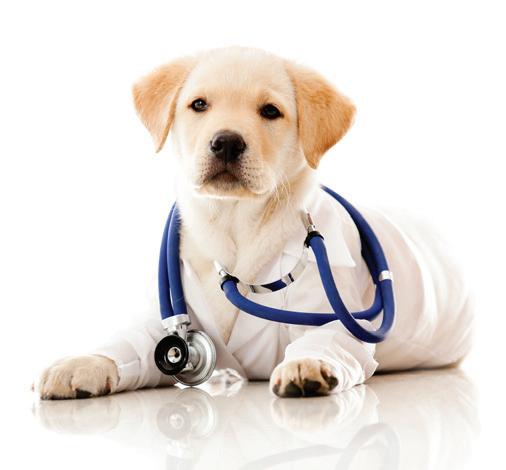
Araceli Aguila, RVT
Joanna Alva, RVT
Georgia Barbush, RVT
Sara Bartoloni, RVT
Samantha Beswick, RVT
Amber Bishop, RVT
Alyssa Buerk, RVT
Kevin Cabezuela, RVT
Douglas Caines, RVT
Kellie Caldwell, RVT
Sabrina Castaneda, RVT
Brooke Cathey, RVT
Susan Cederlof, RVT
Karean Chapman, RVT
Leanne Cronquist, RVT
Camille Druge, RVT
Albert Escobedo, RVT
Erik Fausak, RVT
Valentina Flores, RVT
Cynthia Gerard, RVT
Rebecca Harris, RVT
Leah Hatayama, RVT
Jessica Irwin, RVT
Cassandra Johnson, RVT
Tracy Jones, RVT
Kelsey Kemp, RVT
Sonette Lias, RVT
Alexis Louchios, RVT
Mariah Madrigal, RVT
Hayley Mandaro, RVT
Karina Maurer, RVT
Deborah McBroom, RVT
Daisy Mejia, RVT
Kayla Mitchum, RVT
Norma Morfin Lopez, RVT
Tanya Navarro, RVT
Dakota Nielsen, RVT
Elizabeth Opalka, RVT
Maya Padilla, RVT
Cierra Parker, RVT
Alexandra Paul, RVT
Jennifer Petersen, RVT
Emerald Peterson, RVT
Ashley Rich, RVT
Christi Roberts, RVT
Rocio Romero, RVT
Daniel Rosales, RVT
Clara Saxton, RVT
Rachel Shoumake, RVT
Alyssa Smith, RVT
Christopher Taylor, RVT
Christina Torres, RVT
Salvador Villalobas Barriga, RVT
Makayla Voshall, RVT
Jessica Walbye, RVT
Michael Walcher, RVT
April Washington, RVT
Holly Wilson, RVT
Jennifer Woodward, RVT
CVMA Certified Veterinary Assistant
Payton Bloom, CVMA CVA
Stephanie Haendle, CVMA CVA
Jazmin Peixoto, CVMA CVA
Jackie Perry, CVMA CVA
Joshua Ruiz, CVMA CVA
Veterinary Hospital Staff
Hayley Bauman
Shannon Delahunty
William O’Leary
Amy Parenti
Brandy Robison
Madison Zuleski


Differentiating GI Lymphoma from Inflammatory Bowel Disease (IBD) continues to be a challenge in many cats. When ultrasound is suggestive and biopsy is not an option, alternative pathways to diagnosis are needed. The Feline GI Lymphoma Panel by VDI Laboratory is designed to rule in LSA using a panel of 4 biomarkers, along with age, to separate normal cats from IBD, and IBD from LSA. Result “profiles” suggest if the values more likely represent small cell, large cell, or LSA in the thorax. It’s a simple send out blood test requiring no more than 1mL of serum, and when used in conjuction with ultrasound, can be effective for the accurate diagnosis in the GI cat.


The Tests
TK1 - DNA proliferation marker



HPT - Inflammatory marker
B12 - Intestinal status & DNA synthesis marker


Folate - Intestinal status
Also includes
Neoplasia Index™
Contextual review

Dosing for low B12

CVMA members receive exclusive discounted pricing for GlobalVetLink (GVL), which includes electronic veterinary feed directives.
AVeterinary Feed Directive (VFD) is a document written by a licensed veterinarian, within the context of a valid veterinarian-clientpatient relationship (VCPR), that is submitted to a feed manufacturer or distributor to provide specific instructions about the addition of one or more approved drugs to animal feed under veterinary supervision. Essential information to be entered on a VFD form includes veterinarian and client addresses, the species and production class of animals, the approximate number of animals that will be fed the medicated feed, the drug dose and duration of treatment, and indications for treatment, as well as withdrawal times to prevent antimicrobial residues. Incomplete VFD forms, or forms that include errors, may result in invalidation of that VFD and an inability for the medicated feed order to be filled.

The Antimicrobial Use and Stewardship (AUS) program within the California Department of Food and Agriculture (CDFA) helps ensure that the rules surrounding medically important antimicrobial drugs—including those concerning
prescription drugs and VFD feed use and production in California—are followed. The Inspection Services (IS) team of CDFA AUS performs outreach to livestock feed producers and distributors throughout the state. Beginning in July 2021, IS will be working with California-based feed producers to ensure that the VFDs received by feed manufacturers and distributors are completed correctly according to federal regulations (CFR Part 558). This outreach will help increase compliance with FDA regulations so that medicated feed orders can be filled accurately and in a timely manner.
Concurrently, the Stewardship team of CDFA AUS is focused on providing educational outreach to veterinarians in California who have written incomplete or incorrect VFDs and will share strategies to help veterinarians avoid future VFD errors. Starting in the summer of 2021 and continuing into the fall months, directed outreach will be voluntarily offered to veterinarians who have documented errors on VFDs that were written in 2019 and 2020. Contact with veterinarians will be made through confidential telephone and video conferencing, enabling AUS to provide specific solutions to VFD errors on a case-by-case basis.
As familiarity with writing VFDs increases, it is expected that the number of VFDs that contain errors will decrease. CDFA AUS will continue to serve as an educational resource for veterinarians who have questions about VFD documents in future years.
AUS has joined in a public-private partnership with the Veterinary Information Network (VIN) to produce a free online tool for veterinary use in writing VFDs. This publicly available online calculator is designed to assist veterinarians with accurately generating information to be used when filling out VFDs for all types of livestock. Access to this tool—for both nonmembers and members of VIN—is available at the following link: vin.com/vfd.
Additional information about VFDs can be found at the following websites: cdfa. ca.gov/is/ffldrs/VeterinaryFeedDirective. html and cdfa.ca.gov/AHFSS/AUS/.
For more information, or if you would like to specifically request educational outreach regarding VFDs, please contact CDFA AUS at cdfa_aus@cdfa.ca.gov or 916.576.0300.
GlobalVetLINK (GVL) is a web-based animal health solution that provides intuitive online certification which enables users to quickly and accurately create professional health records. CVMA members receive exclusive discount pricing.

Use GVL to create and manage electronic veterinary forms and streamline communication and animal treatment. This simplifies your compliance and meets two-year record retention requirements. GVL enables you to:
Create compliant Electronic Veterinary Feed Directives (VFDs) that may be sent directly to feed distributors or to clients
Create and immediately submit electronic Certificates of Veterinary Inspection (CVIs)/health certificates to state animal health officials and provide animal owners with online access to their documents
Manage electronic veterinary prescriptions in a secure online account, ensuring accuracy and compliance of approved labels and data retention requirements
Create Equine Infectious Anemia (EIA) “Coggins” test certificates with real time transmission to labs
Create and submit electronic Equine Extended Certificates of Veterinary Inspection (EECVIs) certificates to state animal health officials and provide owners with online access to retrieve their travel permits 24/7. EECVIs may last up to six months and may be submitted electronically to any participating state
Manage data with searchable account that maintains all records and information
Rapidly collect and aggregate diagnostic results from multiple labs, enabling faster reaction time
Create a Pet TravelPass that helps take the guesswork out of domestic and international pet travel and provides the needed documentation.
2015 – California
Senate Bill 27 (Hill, SB 27) is passed, resulting in increased restrictions of MIADs in foodproducing animals, starting in 2017. The antimicrobial use and stewardship (AUS) branch of CDFA is established.
2017 – Implementation of SB 27 begins in California.
2018 – Similar federal legislation to regulate the use of MIADs in animal feed is adopted and is enforced by the Food and Drug Administration (FDA) through the Code of Federal Regulations (CFR), specifically CFR Part 558.
A wide variety of livestock species are covered by VFD requirements, including major species like dairy and beef cattle, swine, chickens, and turkeys, and minor species including sheep and goats.
For more information, visit globalvetlink.com/cvma/.

Each year, the CVMA sends out a notice of open vacancies on the American Veterinary Medical Association’s councils and committees and encourages members to apply for those voluntary positions. Thank you to all who applied this year!

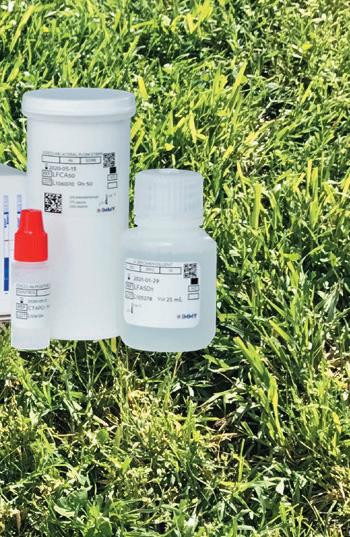


The CVMA extends its congratulations to Dr. Kenneth Pawlowski, who was appointed to the AVMA’s Council on Biologic and Therapeutic Agents (COBTA) at the AVMA House of Delegates meeting in July. In addition to his current status as President of the Sacramento Valley Veterinary Medical Association, Dr. Pawlowski is a Past President of the CVMA and was previously Chair of the AVMA’s Political Action Committee. As a member of COBTA, Dr. Pawlowski will advise the AVMA Board of Directors in the efficacy and proper use of biologic and therapeutic agents in veterinary medicine, as well as the formulation of positions concerning existing or proposed laws affecting such use.
Council nomination materials, including descriptions and a complete list of vacancies, are available at avma.org. Click on the Membership tab then Volunteer Opportunities to sign up for email alerts regarding available positions.






The CVMA extends its sympathy to the friends and family of those remembered.
Dr. Sherry Brothers, a CVMA member, passed away in February of 2021. Dr. Brothers graduated with a DVM from Cornell University in 1981. She served as an alternate delegate for the CVMA House of Delegates from 1989 to 1991 and as the president of the Orange Belt VMA in 1989. Dr. Brothers worked for 30 years at the Highland Avenue Veterinary Clinic in San Bernardino, California, where she treated a small animal caseload.
Dr. Myron Jorgensen, Jr., a CVMA Life Member, passed away on February 3, 2021. Dr. Jorgensen received his DVM degree at the Kansas State University College of Veterinary Medicine in 1964. He served two years in the United States Army as a veterinary officer at Fort Detrick in Frederick, Maryland. Dr. Jorgensen practiced veterinary medicine for 45 years at the Milpitas Animal Hospital in Milpitas, California

In memory of deceased members, the CVMA makes a donation to the California Veterinary Medical Foundation, whose purpose includes “enhancing animal well-being and the human-animal bond.”







CVMA Online Seminars are a quick, easy, and convenient way to fit CE into your busy schedule wherever you have a high-speed internet connection. The CVMA offers most interactive webinars on two different dates and times, allowing you to pick the presentation that works best for you so that you don’t miss out.
Stephen Marmaduke, Wilke Fleury LLP
November 3, 2021 | 5:00 PM–6:00 PM Non-supervisors (1 CEU) 5:00 PM–7:15 PM Supervisors (2 CEUs)
November 9, 2021 | 12:00 PM–1:00 PM Non-supervisors (1 CEU) 12:00 PM–2:15 PM Supervisors (2 CEUs)
Employers with five or more employees must provide sexual harassment and abusive conduct prevention training for all employees every two years. New supervisory employees must be trained within six months of assuming their supervisory position, and new non-supervisory employees must be trained within six months of hire. Additionally, temporary, seasonal, and other employees hired to work less than six months require this training within 30 calendar days after the hire date or within 100 hours worked, whichever comes first.
December 1 , 2021 | 5:30 PM–6:45 PM (1.5 CEUs)
December 7, 2021 | 12:30 PM–1:45 PM (1.5 CEUs)
With the increase in antibiotic resistance in both humans and animals, especially methicillin-resistant Staphylococcus, we need to be better stewards of antibiotics while still treating pyodermas. In this course, we will discuss when to perform cultures and sensitivities, appropriate antibiotic usage, and alternatives to oral antibiotics to treat resistant infections. This course satisfies the judicious use of medically important antimicrobial drugs CE requirement.
Registration for the Bacterial Resistance course will open soon; watch your email for more information.
Why choose Gatto McFerson to conduct your practice valuation?
• We have valued over 315 veterinary practices and clinics
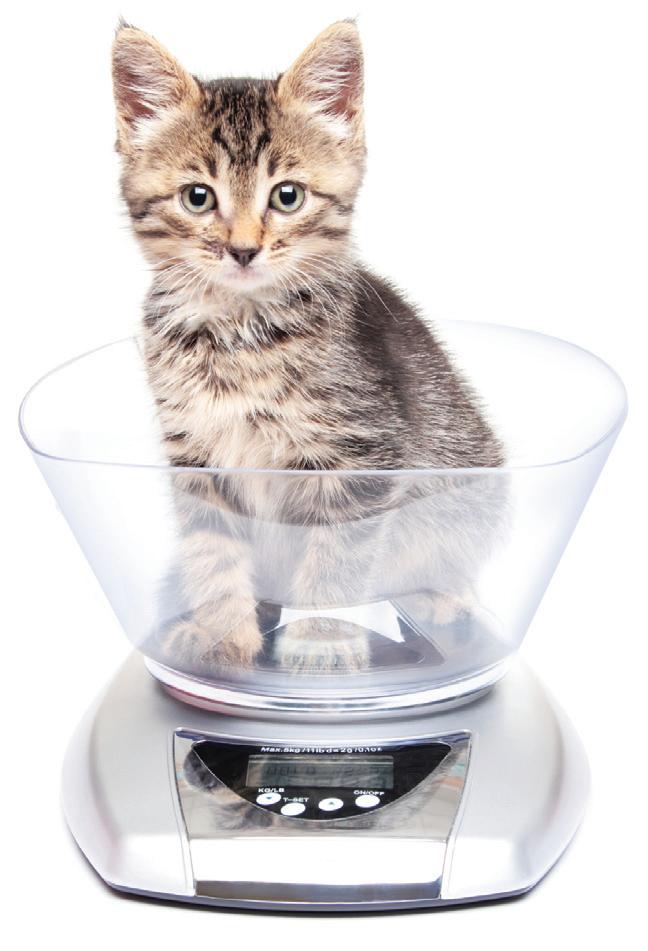
• We have the tax expertise you need when buying or selling
• We are Accredited in Business Valuations, a certification that only CPAs can hold
• We are an independent adviser with no financial stake in the transaction
We are experts in all aspects of:
• Buying and selling a veterinary practice or clinic
• Facilitating associate buy-ins
• Preparing an exit strategy
• Creating an estate plan
• Increasing the value of your practice

To maximize value and minimize taxes, contact:
Lou Gatto, CPA lou@gattomcferson.com
Tom McFerson, CPA, ABV tom@gattomcferson.com
The CVMA has over 1,000 Registered Veterinary Technician (RVT) members and is actively seeking new members. The CVMA supports the growth and development of the RVT profession through discounted continuing education designed specifically for RVTs, legislative and regulatory advocacy, and other RVT member benefits.

RVT membership in the CVMA is $60 per year, which means that for about the cost of a cup of coffee each month, RVT members may access high-quality discounted continuing education that qualifies for California license renewal. Most CVMA conferences offer RVT-specific tracks, and RVT webinars are available on an ongoing basis. CE courses are substantially discounted for RVT members.
Other RVT member benefits include discounts on professional services such as insurance, CareCredit for personal pets, and free regulatory consultation. In addition, the CVMA Certified Veterinary Assistant Program and RVT Roads to Certification Workbook are two member benefits designed specifically to promote the RVT profession and encourage individuals to become RVTs.
The CVMA is an active voice at the State Legislature and in Veterinary Medical Board (VMB) meetings on RVT issues. In fact, the CVMA has an RVT Liaison who attends VMB meetings to speak directly about how issues will affect the RVT profession. Recent examples of CVMA advocacy include working with the VMB to eliminate the RVT state licensing examination as a barrier to licensure and addressing the significant increase in RVT licensing fees.
RVTs have their own delegation in the CVMA House of Delegates and therefore have an active voice and weighted vote in debating issues and advising the CVMA Board of Governors. RVTs also have a voice on a number of CVMA committees. In addition, the CVMA RVT Committee is self-electing and addresses RVT-specific issues to bring before the Board of Governors.
CVMA RVT awards help to recognize outstanding RVTs and elevate the profession. Awards are given yearly by the RVT Committee to RVTs who demonstrate exceptional dedication to and advancement of the veterinary profession.



On August 3, WesternU’s College of Veterinary Medicine welcomed its first-year students during a special, inperson event held at the university. Dan Baxter, the CVMA’s Executive Director, spoke to the incoming class about the broad range of work that the CVMA does and the benefits of becoming a CVMA member. Art Cruz of Veterinary Insurance Services Company (VISC), the CVMA’s member-owned insurance brokerage, gave the students an overview of VISC’s products and services.
WesternU’s White Coat ceremony took place on August 7. CVMA President Dr. Elisabeth Klapstein gave a welcome address and congratulated the students on their acceptance to WesternU. In her speech, Dr. Klapstein offered the students advice on the tools and skills they should cultivate— such as determination, independent thinking, persistence, compassion, resilience, and dedication—in order to find fulfillment, meaning, and success in the profession.

First-year students of the UC Davis School of Veterinary Medicine were welcomed into the profession on August 17 during their first-year presentation. Dr. Grant Miller, the CVMA’s Director of Regulatory Affairs, gave an overview of all that the CVMA has to offer. Dr. Miller elaborated on the many member benefits provided by the CVMA that will serve the students throughout both their academic and professional careers, including free membership for the next five years.
On August 20, Dr. Klapstein welcomed the new UC Davis veterinary students to the veterinary profession during the university’s White Coat ceremony. Dr. Klapstein spoke about the importance of community, support, and peer-to-peer encouragement within the field, both during veterinary school and throughout a veterinary professional’s career.
The CVMA and VISC were proud sponsors of all four student events, and we wish the new students good luck in their future studies and careers!
UC Davis White Coat Ceremony. Dr. Grant Miller, CVMA Director of Regulatory Affairs, presents to the firstyear students of the UC Davis School of Veterinary Medicine. Dan Baxter, CVMA Executive Director, speaks at the WesternU First-Year Presentation.Identification of proximal sesamoid bone lesions contributes to 41% reduction in California racehorse fatalities
Decades of research at the UC Davis School of Veterinary Medicine have provided scientific understanding of equine musculoskeletal injuries. Longstanding collaborations between the university, the California Horse Racing Board (CHRB), and industry representatives have enabled the successful application of research results to enhance equine welfare. Combined with advances in diagnostic technology, this has contributed to a reduction in California racehorse fatalities.
The equine skeletal system includes bones, tendons, ligaments, and cartilage. The bones withstand the combination of a horse’s weight, speed, and the interactive forces with the ground surface during movement. Musculoskeletal injuries are common causes of decreased performance in equine and human athletes.
The most common cause of fatal injury among California Thoroughbred racehorses is proximal sesamoid bone (PSB) fracture. The PSBs are a pair of bones in the suspensory apparatus that supports the back of the fetlock joint. When they fracture, the fetlock loses support and the horse cannot bear weight on the limb. These fractures are related to stress fractures and occur because the bones are unable to repair accumulated microdamage caused by repetitive high loads. Normally, damage is continually repaired by removal and replacement of damaged bone. When bone removal is faster than replacement, temporary bone loss can create weakness and susceptibility to fracture. Until recently, there was no way to identify horses at risk for PSB fracture. A recent UC Davis study discovered and characterized changes that precede PSB fracture and put horses at risk for catastrophic fracture. Sarah Shaffer, a Ph.D. candidate in mechanical engineering who conducts research at the J.D. Wheat Veterinary Orthopedics Research Laboratory under the direction of Dr. Susan Stover, examined PSBs from racehorses that died due to PSB fracture during racing or training.
Microcomputed tomography, high-detail x-rays, tissue stains, and other techniques showed a bone bruise below the joint surface that was not present in unaffected horses. This lesion had a focal region of bone loss and evidence of high levels of microdamage.
These typical stress fracture characteristics provide guidance to veterinarians for injury prevention (via screening) and treatment. With the concurrent introduction of positron emission tomography (PET) scanning of PSBs— pioneered at UC Davis and now in use at Santa Anita Park and Golden Gate Fields—the discovered changes allow affected horses to be identified and rehabilitated before returning to training and competition.
“These research findings were key to developing injury prevention strategies that contributed to the 41% reduction in California racehorse fatalities over the previous year,” Dr. Stover said. “Knowledge of the warning signs of imminent catastrophic fetlock injury allow for detection of affected racehorses and their rehabilitation—saving horse lives and preventing jockey injuries associated with racehorse falls.”
The CHRB Postmortem Program, operating in partnership with the California Animal Health and Food Safety (CAHFS) Laboratory at UC Davis, identifies the pathology and provides scientific understanding of the cause for racehorse fatalities in California with the goal of improving health, safety, and welfare.
“Dr. Stover’s research has had an immeasurable positive impact on racehorse safety and welfare,” said Dr. Jeffrey Blea, Equine Medical Director for the CHRB.
Read the full report “Subchondral focal osteopenia associated with proximal sesamoid bone fracture in Thoroughbred racehorses” published in the Equine Veterinary Journal at https://beva.onlinelibrary.wiley.com/ doi/10.1111/evj.13291.

“Knowledge of the warning signs of imminent catastrophic fetlock injury allow for detection of affected racehorses and their rehabilitation.”Proximal Sesamoid Bone Case Intact PSB Case Fractured PSB
Urban coyote behavior is something of a mystery to researchers, but thanks to the assistance of WesternU faculty and students, a clearer picture of coyote activity is beginning to emerge.
The College of Veterinary Medicine is working with the Los Angeles County Quality and Productivity Commission, the Los Angeles County Agriculture Commissioner/Weights and Measures Project, and the University of California Agriculture and Natural Resources to trap, attach tracking collars to, and release coyotes to gather migration data, which sponsors believe will lead to better management of the species in urban settings. The project has been approved by the California Department of Fish and Wildlife.
“We wouldn’t be able to do this research without a team,” said Dr. Niamh Quinn, Ph.D., UC Cooperative Extension’s human-wildlife interactions advisor. “For scientific research, we need different ideas to come from people with different expertise.”
Dr. Curtis Eng, DVM, an Associate Professor at WesternU, began his work with the project three years ago, viewing it as a welcome opportunity for students to gain hands-on veterinary experience with wildlife. Students would assist in sedating, examining, tagging, and releasing the animals, while Dr. Quinn would attach the radio collar.
Since that time, Dr. Eng has recruited more than a dozen WesternU students to get involved in the project. “Essentially, it was an open call to students who knew
me and my work,” Dr. Eng said. “If you are interested in potentially getting up at 2 or 4 a.m. to work on some coyotes, we’d love to have you.”
Avak Zakarian, DVM 2022, one of Dr. Eng’s recruits, said the field experience was invaluable.
“Being on the coyote research project team has been an adventure,” Zakarian said. “We have all owned pets and have been to zoos to see exotic species, but having to safely capture a wild animal in an open environment, sedate and keep the animal stable, and release it is an experience like no other. Every step of the project has been carefully thought out.”
With funding from the Los Angeles County Quality and Productivity Commission and the Los Angeles County Agricultural Commissioner/Weights and Measures Project, Dr. Quinn bought GPS tracking collars and pays for game cameras to find the coyotes.
Dr. Eng said the team learned that coyotes in the Los Angeles area are more elusive than previously thought. When the project was being outlined, the researchers estimated that it would take 12–18 months to trap, collar, and release 20 animals. The project is now in its third year, and 19 coyotes have been collared thus far. The project’s second phase is in the planning stages.

“We hadn’t realized that coyotes are much smarter than we are,” said Dr. Eng with a chuckle. “So every year I have to recruit a new set of students.”
The unpredictability of coyote behavior makes the project an ideal teaching activity.
“What I love about the project is that it’s provided the students with an opportunity to get hands-on wildlife experience,” Dr. Eng said. “This is a real-world activity, where we are trying to make a difference in how coyotes are managed long-term within a very urban society.”
A documentary on the project, “Coyote Conflict in Los Angeles - The UCANR Hazing Study,” can be viewed for free on YouTube at https://www.youtube.com/ watchv=IEnqU24RgAU&feature=youtu.be. The University of California’s Agriculture and Natural Resources Department wrote about the project here: https://ucanr.edu/ News/?routeName=newsstory&postnum=46062.
Place your ad in the Career Center at cvma.net. There are two options for classified advertising:
1. Online advertising
2. Online and in one issue of the CaliforniaVeterinarian
CVMA Members NonMembers
*Price includes the first six lines of text. Each additional line is $10/$11 for non-members. A line consists of approximately 50 characters.
**If you wish to place a print ad only, contact Laura Phillips at 916.649.0599 or classifieds@cvma.net.
If you have any questions, please contact customer service at 860.437.5700, clientserv@yourmembership.com, or classifieds@cvma.net.
Online only
30 days online $149 $199
60 days online $249 $299
90 days online $349 $399
Online and in one issue of the California Veterinarian
60 days online + one issue of the California Veterinarian $299 $349
90 days online + one issue of the California Veterinarian $399 $449
POST AN ANONYMOUS AD OR RESUME
Resume – Post a confidential resume. Go to cvma.net. Click on the Resources tab then Classifieds in the right menu to get started.
Ad – Place a confidential ad by creating an anonymous email address and using it when posting your ad.
Veterinarians
Join our awesome, fun, and professional team! We are a wellestablished privately owned AAHA-accredited veterinary hospital in Alameda, CA (SF Bay Area). We are looking for a FT or PT veterinarian to join our amazing family. Our clients are the best, and we have a fabulous staff with many years of experience. We practice high quality medicine balanced with the ability to treat animals of families with different budgets. We treat dogs and cats, and would love to offer exotic medicine as well. Typical hours are MWF 8-6pm, Tues/Thurs 8-8pm. NO WEEKEND HOURS! Medical/ Dental/Vision insurance for FT employees. Email your resume to Dr. Laura Wagner at alamedapet@yahoo.com.
Experienced Veterinarian Wanted: 7+ Years of experience preferred. Centrally located to SF, Napa, Yosemite. Out of State? No problem! Changes anticipated Jan. 1, 2022 to make obtaining a CA DVM License much more simple and quick! Earning potential of $400,000/year. Visit www.ValleyCritterCare.com for more information!
Veterinarian - Sign on Bonus! Purrfurably Cats in Monterey, CA is seeking a full-time veterinarian to join our feline-only practice!
DEADLINE DATES FOR AD SUBMISSIONS IN THE CALIFORNIA VETERINARIAN:
Issue
Deadline
Jan/Feb December 5
March/April February 5
May/June April 5
July/Aug June 5
Sept/Oct August 5
Nov/Dec October 5
If your ad is received after the deadline, it will go into the following month’s California Veterinarian. After the deadline, the CVMA cannot alter or cancel ads. The CVMA reserves the right to edit copy and does not assume liability for contents of classified advertising. Prices subject to change without notice.
Your Well Being Matters: Work-life balance with generous paid time off; Relocation Assistance; Sign-On Bonus!; Paid professional dues and liability coverage; Competitive salary; Continuing Education reimbursement; 401k; Medical, dental, vision and prescription drug benefits for you and eligible dependents; Ongoing mentoring; Full support of talented and passionate staff to help you every step of the way; Plus much more! Qualifications: New grads welcome; Experienced vets welcome. Live your Best-Balanced Life! Located in Monterey, CA, you won’t run out of fun activities in this picturesque coastal community. From winding along the breathtaking Big Sur coastline on Highway 1 to sipping wine to playing 18 holes on the numerous golf courses, Monterey will reinvigorate your soul and provide that work/life balance that you are looking for. Who We Are: Established in 1995, We are Monterey County’s only feline-exclusive veterinary hospital. Our state of the art full service veterinary facility retains a homey feel for the comfort and care of that special feline companion. The hospital is equipped with digital radiology, dental radiology, in-house lab equipment and a full boarding suite. Our fun-loving and professional team maintains an enjoyable, cat-friendly work atmosphere committed to the needs of our patients, clients, and staff. Don’t Wait! If you are interested in becoming part of a practice team with an excellent community reputation, a positive work environment and focus on providing authentic service while living your best-balanced life, APPLY NOW! https://westernvetpartners.clearcompany. com/careers/jobs/982ccdb4-dd6d-04f6-af3a-124378a69480/ apply?source=1365864-CS-38470.
Experienced Veterinarian only. Must be dedicated and a highly motivated team player, with the opportunity for Medical Director in 4 yrs. Our hospital promotes a great work/life balance with a strong emphasis on Customer service. 2-3 days per week. Hours Mon. - Fri. 8-5. Nights, weekends, and holidays off. Email resume to cheree.angus@tcvhosp.com. All inquiries are confidential. www. tcvhosp.com.
Seeking an associate veterinarian (experienced or new grad) to join our team. Opportunity for future ownership. You will be able to practice high-quality/progressive medicine in our busy small animal practice (we also see exotics). We believe in modern medicine integrated with alternative therapies. And we are always open to and encourage new ideas. The cases you will manage range from preventative care to internal medicine, surgery, dentistry and emergency services. Our experienced team is friendly and tightknit. We work together on difficult cases to create the best plan for our patients/clients. We are located in a beautiful and scenic small town in northern CA, with a relatively low cost of living. We have plenty of outdoor activities, wine tasting, artisans and local farmers to keep you entertained on your days off. It is also fairly close to major metro areas, the redwoods and the coast. Flexible 4-day, 40-hour workweek. We believe in a good work/life balance. Competitive salary 120,000+ (plus production) with other bonuses, benefits and incentives. Mentorship is provided if desired. SIGNING BONUS. Visit us at clearlakevetclinic.com. STARTING BASE Salary at $120,000 + Pro-Sal structure; Signing bonus; Payment and support for CA licensing if not currently licensed in the state; Health/Dental/Vision Group Insurance; Life insurance coverage; Vacation and paid holidays; VIN, AVMA, and CVMA annual dues; DEA license; CE benefits; Maternity/Paternity leave if eligible; 4 day 40 hr. work week & flexible scheduling - ALWAYS 2 days off in a row MINIMUM; New & high-end equipment, including: digital xray AND digital dental xray, full in-house lab, ultrasound (w/ color flow), Class IV Laser Therapy, PRP centrifuge/kits, complete monitoring equipment (EKG, BP, CO2, SP)2, continuous rectal thermometer, etc), warming systems, etc. OPEN to other equipment if an interest; Beautiful location with desirable cost of living; Supportive team & employer! drduff@clearlakeveterinaryclinic.com.
Lomita Pet Hospital is looking for an experienced full-time or parttime associate. Someone who is comfortable working alone and comfortable performing routine surgeries. Working at least every other Saturday would be required. Benefits are available for fulltime employees. We are a full-service small animal practice located in the South Bay. We have in-house IDEXX machines, digital x-rays, digital dental x-rays, and a K-laser. Interest in holistic medicine would be ideal, but not required, as we do offer holistic medicine as well. lahospitalinfo@gmail.com. Our website is: lomitapethospital.com.
Tired of the daily day to day, but not quite ready for a variety of critical care cases? Are those overnight ER shifts starting to age you?
Veterinary Surgical Specialists of Orange County and AVSG Urgent
Care in Tustin, California are looking to add daytime urgent care veterinarians that will focus on non-critical cases that present to the surgery and emergency departments. We are interested in speaking to new graduates, internship trained candidates and experienced GP or ER clinicians for part time or full-time positions. This position will include care and services of non-critical care cases, to include skin lacerations, minor lameness, vomiting, bite wounds, ear infections, and eye and skin issues. You will have access to in house boarded specialists if you need the support. The schedule will consist of 10hour shifts, 8 AM to 6PM. Full time positions (4 ten-hour days) offer a competitive benefits package including 401(k), CE, Health and Dental, and Professional Liability Insurance, professional dues, and memberships, as well as a moving stipend. Culture is important to us and finding the right individuals for our team is a high priority. We are a tight-knit, collegial group of medical professionals who work collaboratively to provide the highest level of both patient and client care possible. Our hospital is a 13,000 square foot facility and is the largest of the nest of 10 independent specialty practices in our Plaza. We provide nighttime emergency services as well as specialty services including Surgery, Dermatology and Dentistry. The other practices in the Plaza include Ophthalmology, Internal Medicine, Oncology, Neurology, and Imaging. We serve the Orange County and most of Southern California. We boast the best climate in the country with endless social and cultural opportunities. Email rpankowski@vssoc.com.
Look, we’re all adults here. It’s not exactly breaking news that as a veterinary medical professional- even with the best work-life balance possible!- you’re going to be spending a lot of time with the folks at your practice. You’re definitely going to know the names of not just their immediate families, but probably their extended families, too… including Caleb, their third cousin (by marriage!), who seems to be involved with a new multi-level marketing scheme every other week. No, Caleb, we’re all set on athleisure apparel, thank you very much. In SoCal Vet Group, we focus on building culture to make sure your working environment is as supportive and pleasant as possible. We call that “the SCVG way,” and it is coded into our DNA. As a leadership team, we spend the time to develop and train every staff member, and we do everything we can to provide a robust caseload for our team and our doctors. We believe developing people while keeping them challenged and stimulated is what pushes veterinary medicine further. Our three unique hospitals provide that challenge with general practice and emergency services seven days a week. We offer extended hours and the opportunity to use state-of-the-art equipment alongside other highly trained veterinarians and veterinary specialists. Unlike a one-doctor practice where the managing vet doesn’t have time to develop and mentor doctors, or a private equity-run hospital concerned with shareholder returns, we’re focused on the SCVG way and our mission statement: develop our people so they can deliver on our promise to “inspire the bond between pets and their people.” The starting salary for a new SCVG doctor is $150,000.00. We offer great benefits, including health, CE, 401K, and vacation. We are very focused on continuing education and training- we even offer in-house CE led by our board-certified internist. While all our modern, spacious hospitals offer up-to-the-moment equipment, our culture, team, and positive work environment are what really
make us special. Come join us! We look forward to getting to know you… and your Calebs. hr@socalvetgroup.com https://www.scvgie. com/about-us/our-culture.
Dogs and cats only practice seeking a part or full time veterinarian to help out our well established non corporate hospital. We are located in Santa Clarita Ca, a bedroom community outside of LA. We have been in business since 1996 and have a loyal clientele. We are a progressive daytime practice offering excellent care to our patients. We are looking for a candidate who is collaborative, patient and willing to grow with the times. We are considering all skill levels so please don’t hesitate to call or Email if you have any questions concerning employment cshil51@hotmail.com. If calling ask for the manager 661.297.8373.
A busy 3-doctor small animal clinic in heart of Los Angeles, CA is looking into hiring a practice manager with at least 1 year experience. Email Info@beverlyrobertsonvet.com.
As an emergency veterinarian, Veterinary Specialty Center in Buffalo Grove, IL knows your wish list: Working for an established, privately-owned specialty and emergency hospital with an incredible reputation for excellence; Medical transcriptionists to write your medical records for you in real-time so you can focus on the medicine and having a work-life balance; The highest ratio of doctors to certified/specialty technicians so that you can focus on what you love, practicing the best medicine possible; Student Loan Repayment Program (we make sizable, non-taxable contributions towards your student loans); Working with an amazing referral community; Environmentally and ethically driven business (Certified B Corp); Support from our four phenomenal boardcertified criticalists; Collaborating with a diverse and thorough team of specialists that are all in the same building; 24/7/365 on-call emergency surgical support from our five board-certified surgeons, two anesthesiologists and their team; Level I Veterinary Trauma Center; Competitive salary that is not production-based so you can provide tailored care that meets both patient and client needs; Utilizing the latest software technology including electronic records and treatment sheets; Minimum of two emergency doctors on the floor so you are never alone; Strong rotating intern program to help fortify our future veterinary community; Daily grand rounds with our specialists to discuss hospitalized patients and promote learning; Advanced imaging, including ultrasounds, performed by our two board-certified radiologists; 3 Tesla MRI, 64-slice CT, digital radiology, fluoroscopy and c-arm, hyperbaric and high flow oxygen therapy, ventilator support, portable ultrasound, plasmapheresis, hemodialysis, and apheresis; 24/7/365 on-call emergency endoscopy support from our three board-certified internists and their team; On-site veterinary diagnostic laboratory and clinical pathologist for fast results; Licensed Clinical Professional Counselor
to support both staff and clients; Fully equipped on-site bistro with fresh salads, sandwiches, snacks, drinks, and incidentals; 401k match; Generous CE allowance; Medical, Dental, and Vision; Pet insurance; Employer HSA contributions; Employee Assistance Program. VSC is a privately-owned specialty and emergency hospital that has over 300 employees at our main location, which is about 40 minutes just outside of Chicago in Buffalo Grove. We are extremely collaborative and foster a very active learning environment for our staff, residents, interns and externs. We are also the first veterinary hospital in the U.S. to become a Certified B Corporation, which means we have taken great strides to put our employees, community and environment first and use them to guide our trajectory. Our specialties include surgery, rehabilitation and integrative medicine, internal medicine, emergency and critical care, anesthesia and pain management, neurology, radiology, oncology (medical and radiation), cardiology, dermatology, nephrology and clinical pathology. Top reasons why you should consider a career in the Midwest: Chicago is a big city with a lot of really fun things to do (museums, parks, restaurants, zoos, aquarium, shopping, concerts, volunteering, tours, etc.); Lots of breathing room if that’s your vibe (parks, beaches, forests, camping, suburbs, and plenty of space for dogs, chickens, goats, etc.); We’re community-oriented and healthier for it (a University of Cambridge 2013 study assessed the personality traits of more than 1.5 million people and found that the personalities of Midwesterners had “moderately high levels of extraversion, agreeableness, and conscientiousness.” So come on over, let’s be friends!); The midwest is less stressed (in 2020, WalletHub released data on the most and least stressed states with the midwest leading as the least stressed. Laidback lifestyles, affordability, sense of community—these could all be factors in the relatively low level of stress for Midwesterners.); We have not one, but two international airports (whether you need to quickly and easily visit friends, family or an exotic locale for a little rest and relaxation, we’ve got you covered.); Since we just checked all your wish list boxes, what are you waiting for? Apply today and join our incredible team! Job Requirements: Internship-trained preferred or at least 3 years of emergency experience. Not enough emergency experience? No problem. We also offer our accelERate program where you are closely mentored for 6 months and then have a guaranteed six-figure salary. Contact Jayme Richardson, jrichardson@vetspecialty.com; (847) 459-7535 Ext. *1522.
Equine practice for sale in the Northern California Sierra Foothills. Great clientele; established for 30 years. Practice focus on Equine rehab/Sports medicine. Offering both ambulatory and office appointments. Great opportunity for solo Vet or two Equine/LA Vets to share. Practice equipment including new DR, digital ultrasound, practice vehicle, office server/software etc. can be included. Motivated seller is retiring. Contact: scott@scottmcintoshdvm.com.
Thriving Marin Co. house call practice for sale. Licensed home clinic, surgery on the property with a spacious, upscale ranch house on 1/3 acre also for sale. High net in affluent suburbs. Mobile M/W/F, office visits/ procedures T/Th. Best of both worlds. Flexible hours, great variety, best work life balance. KenDSteele@comcast.net 415.451.4838.
Brokers and Appraisers
Practice and Real Estate Sales
Ellie Wattles, DVM, President, Broker
Beka Herrera, Vice President, Broker
Connie Burke, CPA, CVA, CM&AA
GREATER LOS ANGELES: Situated near all the amenities that Los Angeles has to offer. Free- standing facility includes 2 exam rooms, 22 runs & 30 cages with options for redesign. Equipment includes 2 anesthetic machines, IDEXX lab equipment & DR X-Ray. 2020 Gross ~$2 Million produced w/ essentially 2 full time DVMs. Extremely profitable PX currently under-utilized with potential for increased services, hours, and revenues. Owner & associate open to remaining post-sale, under new ownership, if desired by new buyer. P PRACTICE PRICE: $1,688,000 REAL ESTATE FOR SALE
GREATER SACRAMENTO: Located approximately 25 miles northeast of Sacramento. Free-standing, leased facility consists of ~2,300 sq. ft with 2 exam rooms, 18 cages & 10 runs. Computerized practice includes digital X-Ray and ultrasound. 2021projected gross ~$1.3 Million. General full-service small animal hospital with special reproduction services. C CALL FOR PRICING & ADDITIONAL DETAILS
KERN COUNTY: Situated in a growing community located ~1 hour North of LA with a strong agricultural, oil & general broad economic base including a new Amazon fulfillment center. There are many nearby amenities & affordable housing. This general Small Animal practice offers an ~3,000 sq. ft. facility with 3 exam rooms, 60+ cages and 10 runs. Equipment includes ultrasound & digital X-RAY. 2021 projected gross ~$1,245,000. Potential to significantly increase hours of operation to grow productivity. P PRACTICE PRICE: $667, 000 REAL ESTATE PRICE: $425,000
VENTURA COUNTY: Located in a great upscale community with excellent amenities, desirable demographics & highly rated schools. Family-friendly community. Attractive & modern, ~1,800 sq. ft leased facility is strategically located in popular shopping center. Equipment includes Abaxis Lab & Digital X-Ray. Underutilized PX /limited DVM hours. 2020 Gross: $467,000. PX is offered at less than a start-up PRACTICE PRICE ONLY: $225,000
MENDOCINO COUNTY: Just 2 hours north of the San Francisco Bay Area & west of Sacramento. This area boasts spectacular scenery & distinctive wineries. Hundreds of miles of hiking trails, verdant hills & secluded lakes residents can easily find solitude & beauty. 1 PT DVM PX. ~1,500 sqft leasehold facility located in a small strip-center. 2020 Gross~ $446,000 produced with very limited hours. P PRACTICE PRICE ONLY: $120, 000
GREATER CARMEL: A unique community that embraces family, prosperity, and the highest quality of life. The Pet Spending Potential Index for the surrounding area is 96% higher than the national average. Well established, growing PX is in an attractive ~1,600 sq. ft. leased facility, including 2 exam rooms, 12 cages & 2 runs with room for expansion. Full service, small animal practice includes extensive equipment. 2021 projected gross ~$1.2 Million produced primarily with ~1 DVM per day and limited hours, including no weekend PRACTICE PRICE: $824,500
SAN DIEGO, SOUTH BAY: Well-established practice is located within a strip center with the leased facility consisting of ~1,968 sq. ft / 3 exam rooms. Exceptionally well-equipped PX including Digital X-Rays (one for body and one for dental), Color doppler ultrasound, Abaxis analyzer (all owned by the practice). 2021 projected gross over ~$2 Million. Excellent growth and profitability. C CALL FOR MORE INFORMATION
SAN FRANCISCO BAY AREA: Leased, ~ 1,439 sq. ft. facility offers 2 exam rooms, large treatment area, 20+ stainless steel cages & 2 runs. Full-service PX also includes recently updated digital DR X-RAY, dental machine & 2 anesthetic machines. PX is experiencing tremendous growth year over year. 2020 Gross ~$1,015,479 produced w/ limited office & doctor hours. Exceptional profitability. P PRACTICE PRICE: $979,400.
SONOMA COUNTY: Wine country. Excellent visibility of the practice with ample parking. Practice offers personalized, quality veterinary services with reasonable fees. Very high demand for services. ~2,500 sq. ft facility with 3 exam rooms. Equipment includes X-RAY & in-house lab. 2020 gross ~$799,000. Excellent profitability. PRACTICE PRICE: $676,000 REAL ESTATE PRICE: $675, 000
JOIN US AT THE WVC 2021 ANNUAL CONFERENCE, SEPTEMBER 7-9
Booth # 730 (Mandalay Bay Convention Center, Las Vegas, NV)
545 Sespe Avenue Fillmore, CA 93015 Phone: 805.524.3195
Fax: 805.524.3192
E-mail: PacProInc@aol.com Website: www.pacificproinc.com
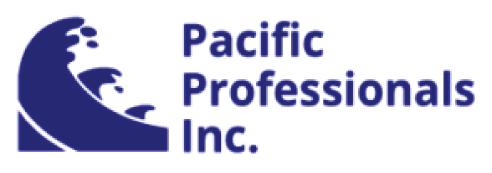
Small animal hospital for sale by owner. Tired of corporate medicine and want to own your own practice? We are located in Yuba City, CA, a fast growing city approx. 40 miles north of Sacramento and within 2 hours of both the coast and Sierra’s. This is a well-established, small animal practice (over 35 yrs at present location, over 21 yrs with present owner). Extremely well equipped with full in house lab, Aesculight CO2 surgical laser, video otoscope, new premium color doppler ultrasound, digital radiography (w/ new tube) including dental with new digital dental software, paperless records w/ all new computer system and updated PMS. Free standing 2950 sq. ft. facility on large lot w/ 3 exam rooms, lab/X-ray room, surgery suite, isolation room, 14 indoor runs, 30 SS cages and 12 outdoor runs. 2020 gross of over $1,000,000 with solo doctor and limited hours (M-F 8:00-5:00, no wknd or emergency hours); can easily be a 1½ - 2 doctor practice and suitable for extended or wknd. hours. $890,000 for practice, real estate negotiable for sale or lease. (530.701.4631).
Turn key well established equine practice in Southern California. Apple Valley Equine Hospital, built in 1986 is a 3200 square foot office/medical/surgical facility. There is an adjacent eight stall barn, 24w x 40L x 20 tall cover with cement floor exam/treatment area. The facility includes a 60 foot round pen, 12 stall mare motel and a mobile home for staff or residents all behind perimeter fencing with electric gates. There is ample parking within the fenced area for several large equine trucks and trailers. The practice is at this time a Monday - Friday 8 - 5 haul in equine sports medicine/lameness based practice. Practice is a “Pay at time of service”, no billing is done. Gross income is 1.0 -1.2M, with one DVM and three assistance staff. The sale includes 5 acres, full facility with home, all equipment (medical, surgical, repro, digital endoscopy, digital wireless x-ray,
digital ultrasound, full IDEXX blood lab and micro lab). The facility hast two surgical suites, indoor exam/ x-ray / ultrasound area. Also included is a 2015 F350 crew cab diesel truck with monarch vet pack (21,000. miles). Also included is an additional monarch vet pack. We are asking 750K for all of above, with no “Practice” fee added on. Our desire is to honor our clients and friends with a quality sports medicine DVM. For information on purchasing, please contact us by phone at 760.247.4226 or email at avequine@aol.com.
FLORIDA: Free standing Hospital located in one of the fastest growing coastal counties in FL. One Vet half time doing 600K/ year with building already built to expand into double size 2-3 Vet practice. Principals only reply to jess1950@comcast.net.
Solo practitioner in Palmdale, CA, retiring after almost 50 years. I am the only mobile equine practitioner in over 50% of my practice area. Six other equine practitioners have retired in the last 6 years, with no replacements. Therefore, there is much more business than any 3 or 4 doctors can handle. My business Nets over $300,000/ year and my fees are 50% to 200% below that of the veterinarians in the surrounding areas. Thus, there is ample room to raise your fees and increase your income. All you have to do is walk in the door and take over. I do, however, want to sell my equipment, but at a significant discount, as it is used. It is all one needs, i.e. ultrasounds, digital x-ray, incubator, endoscope, etc. If no one wants the practice, I will sell the equipment separately and would be happy to separate the office equipment from the medical. An inventory with photos is available upon request. For further information, please contact Kathy Wilder at 661.860.1926 or via email at Waynedvm15@gmail.com.











